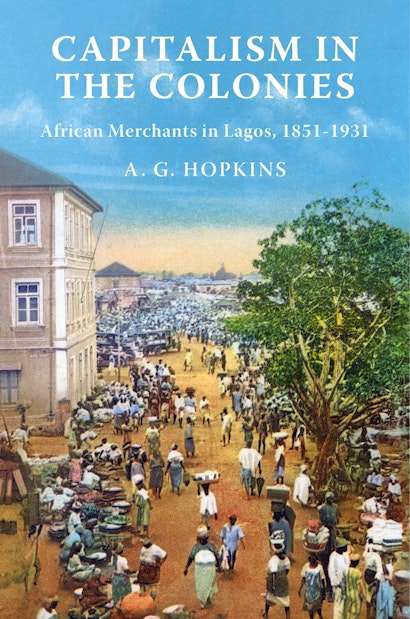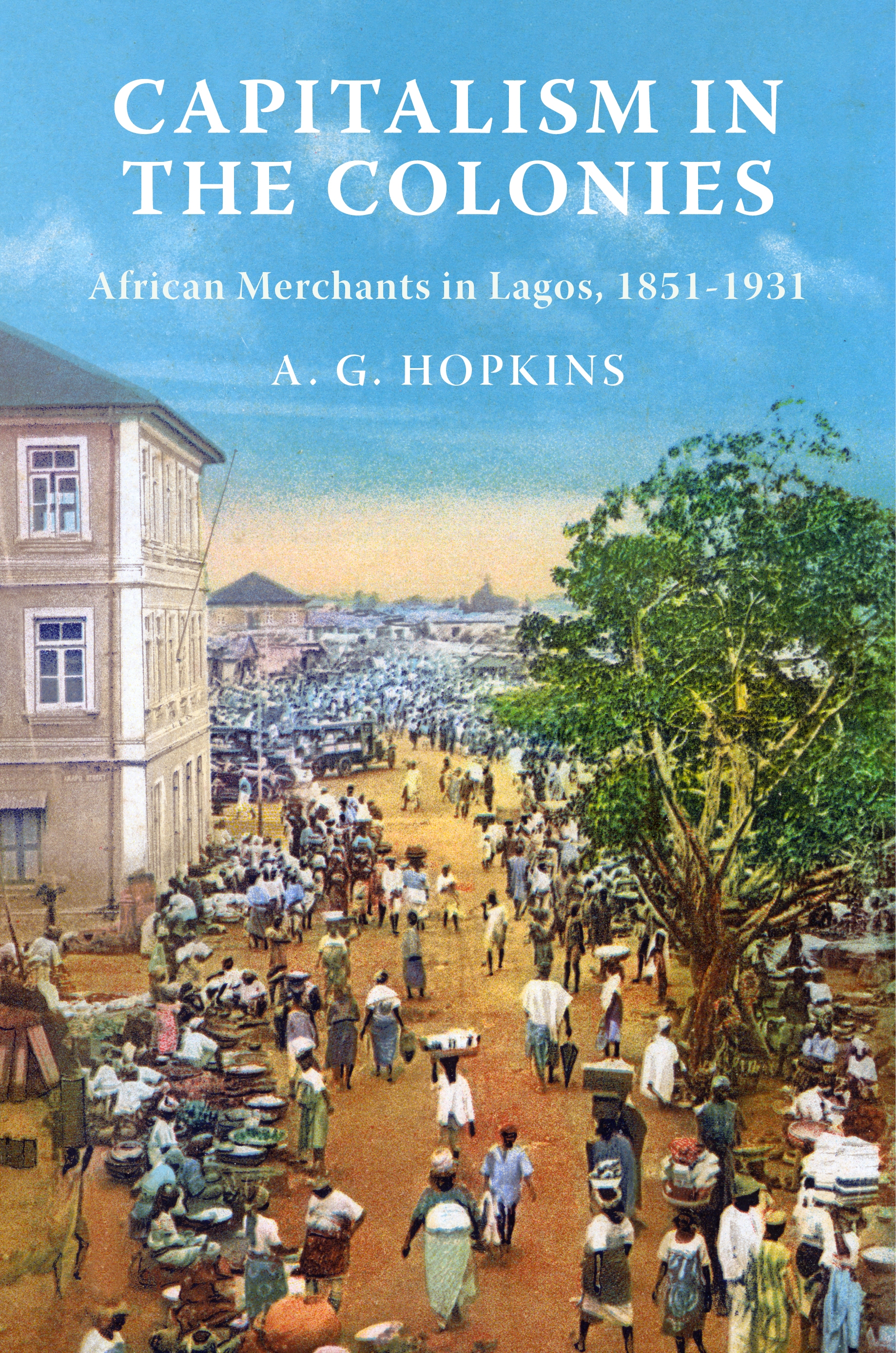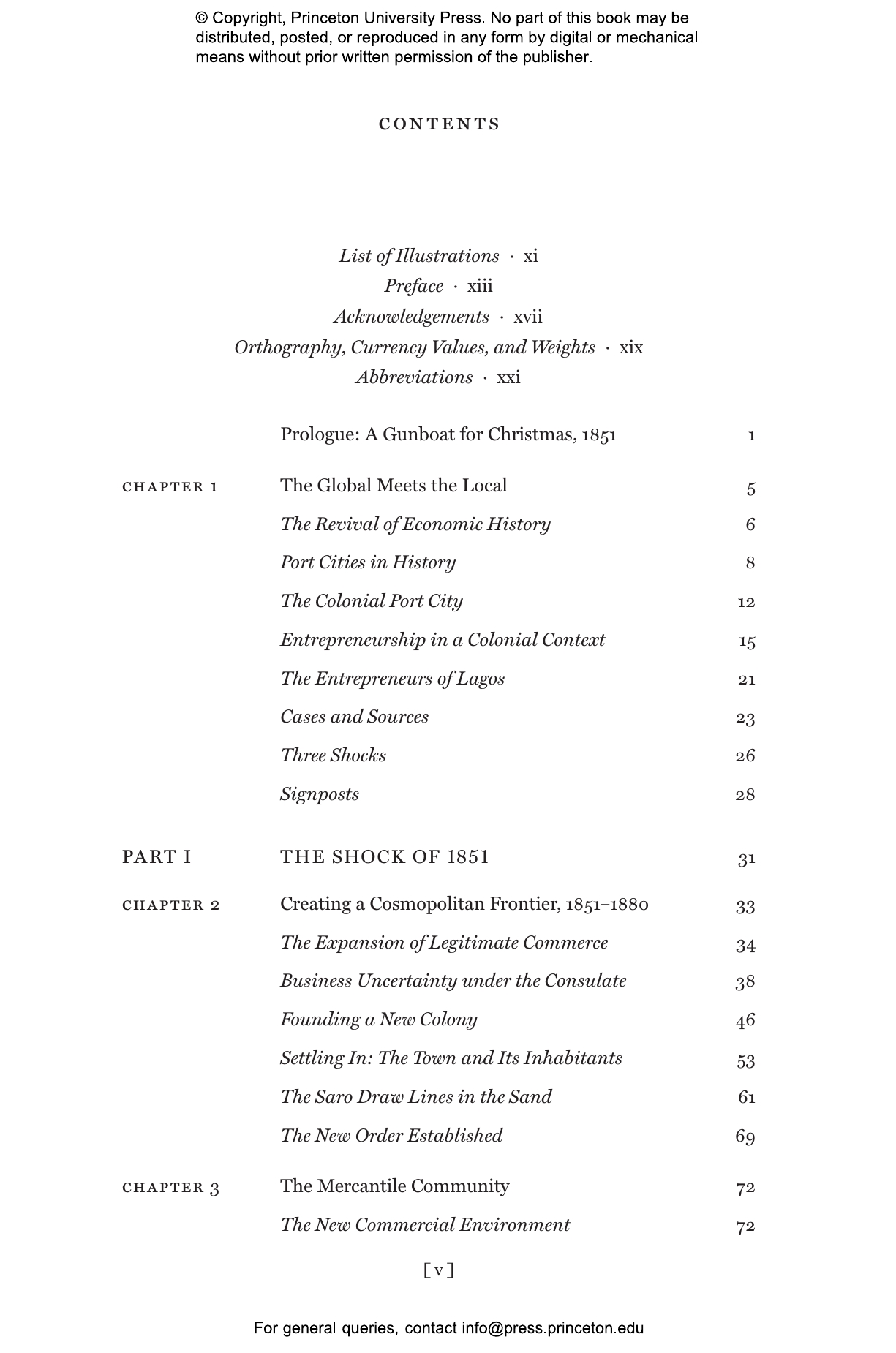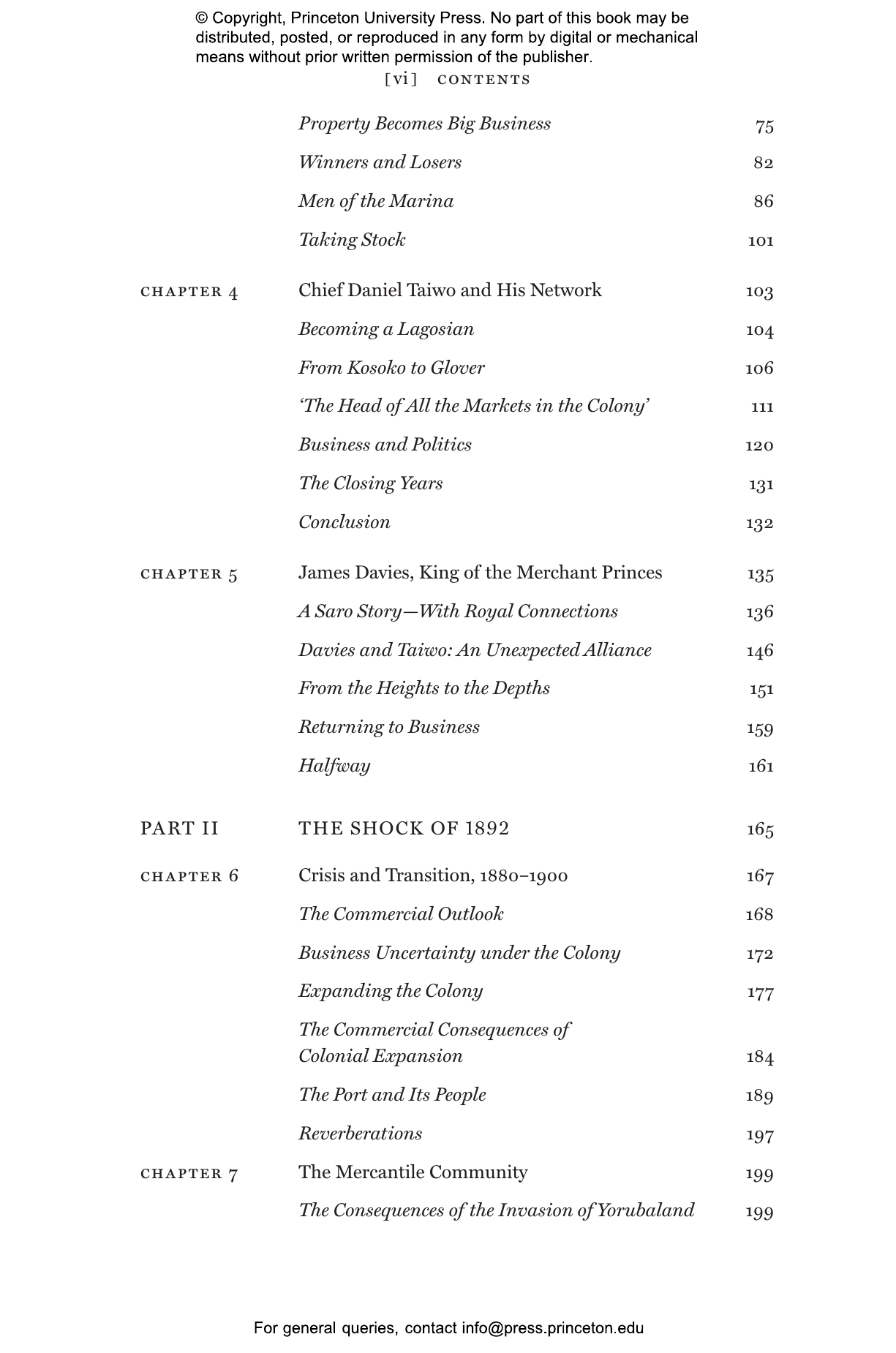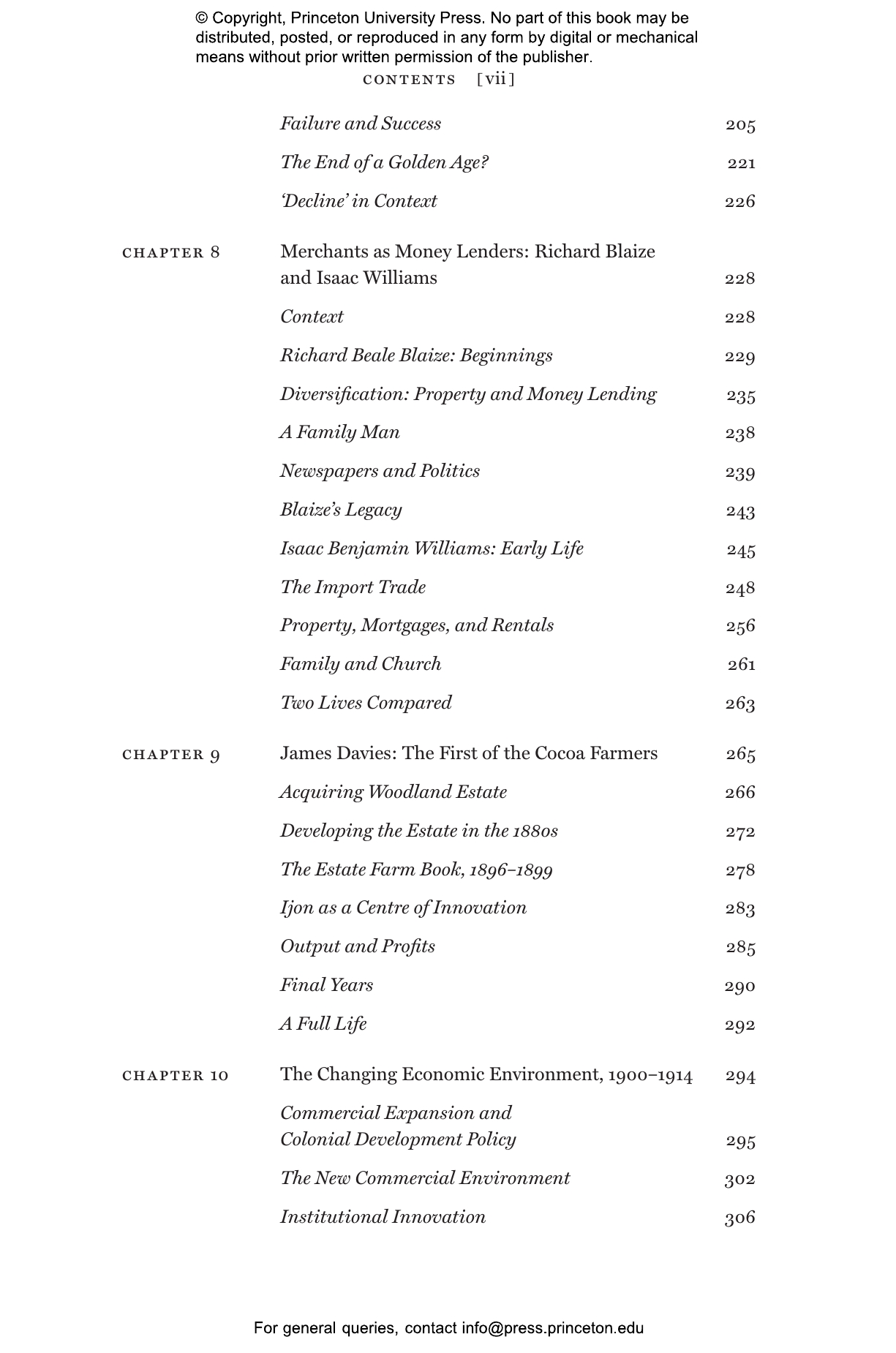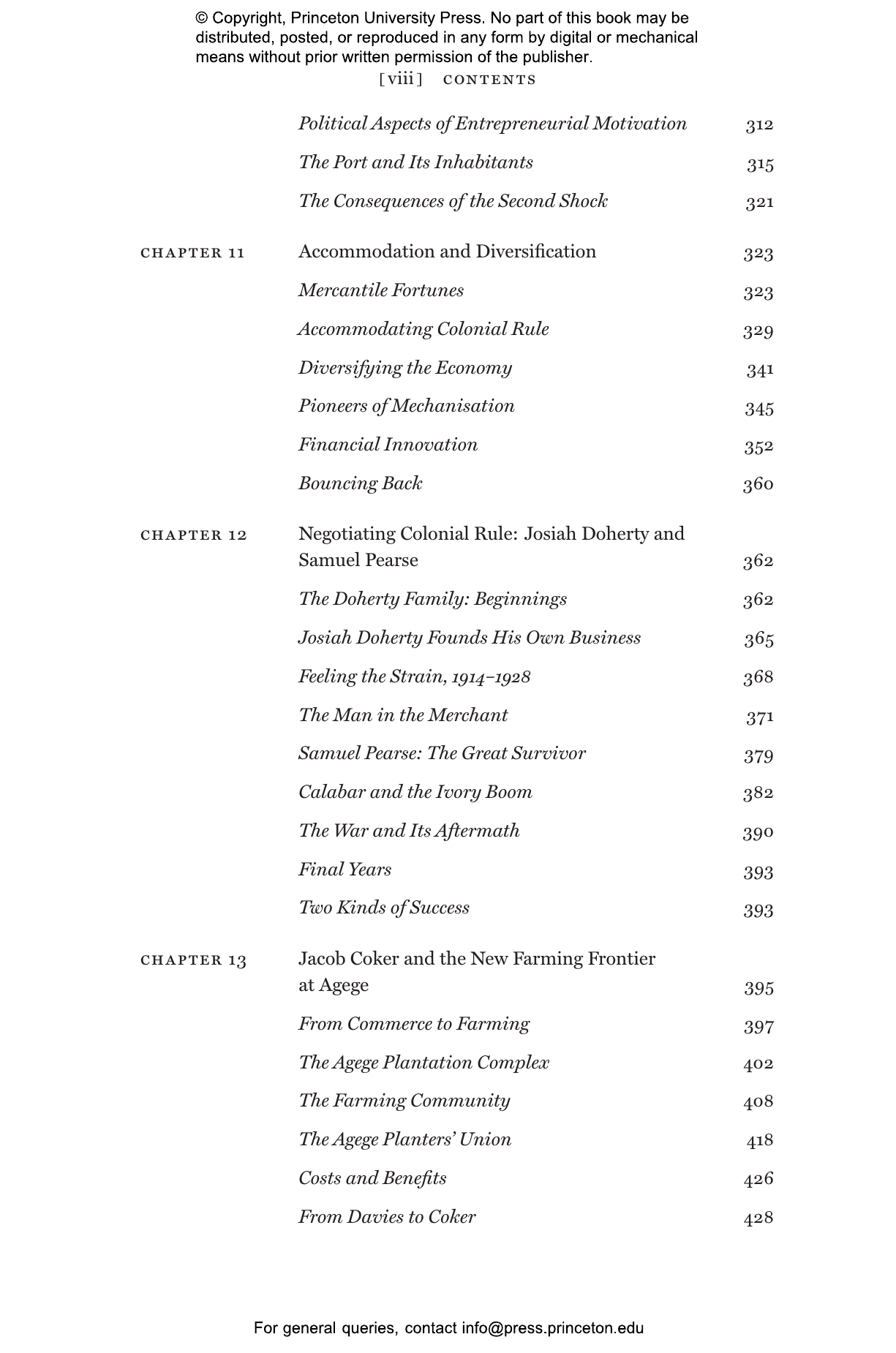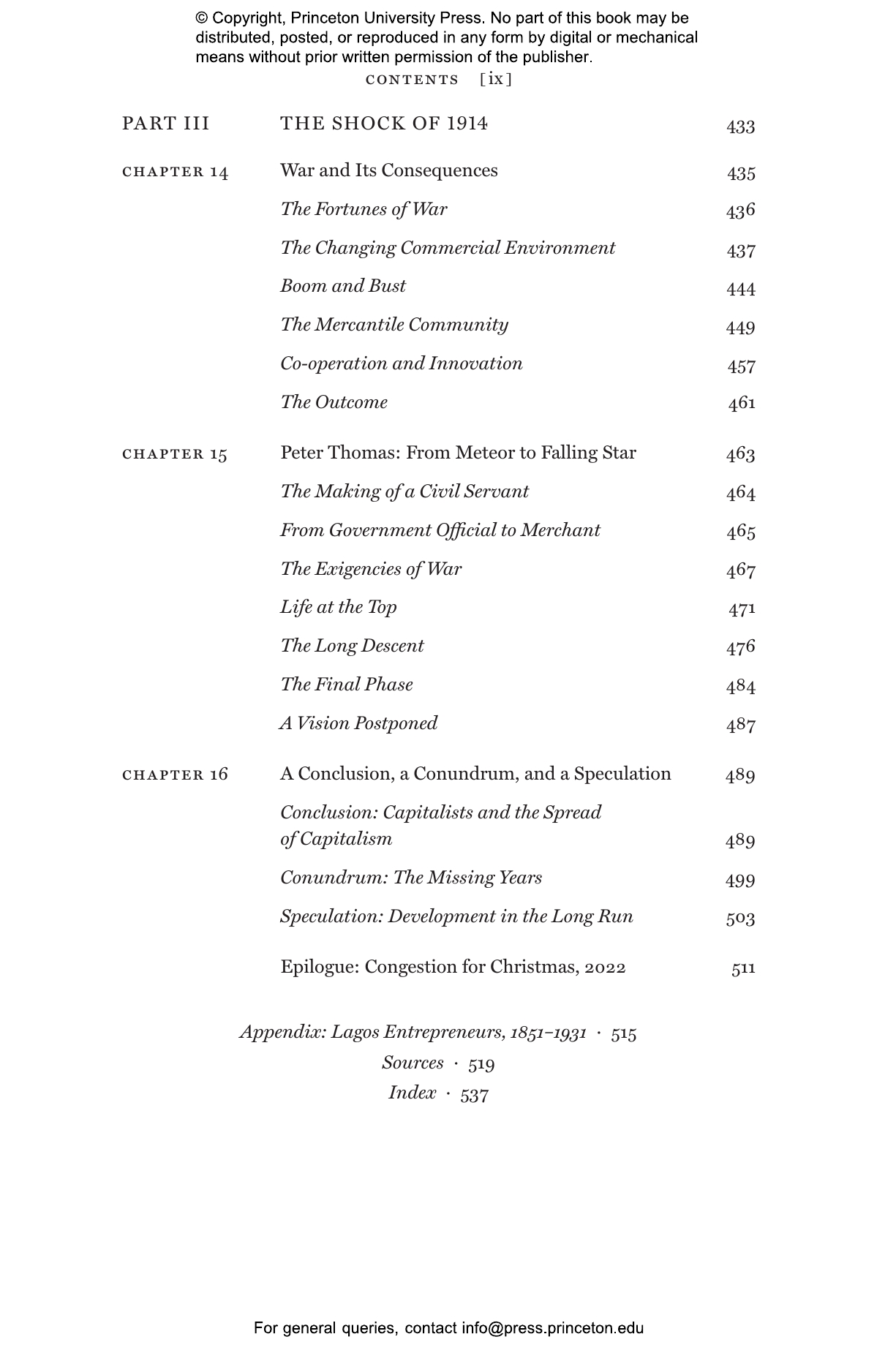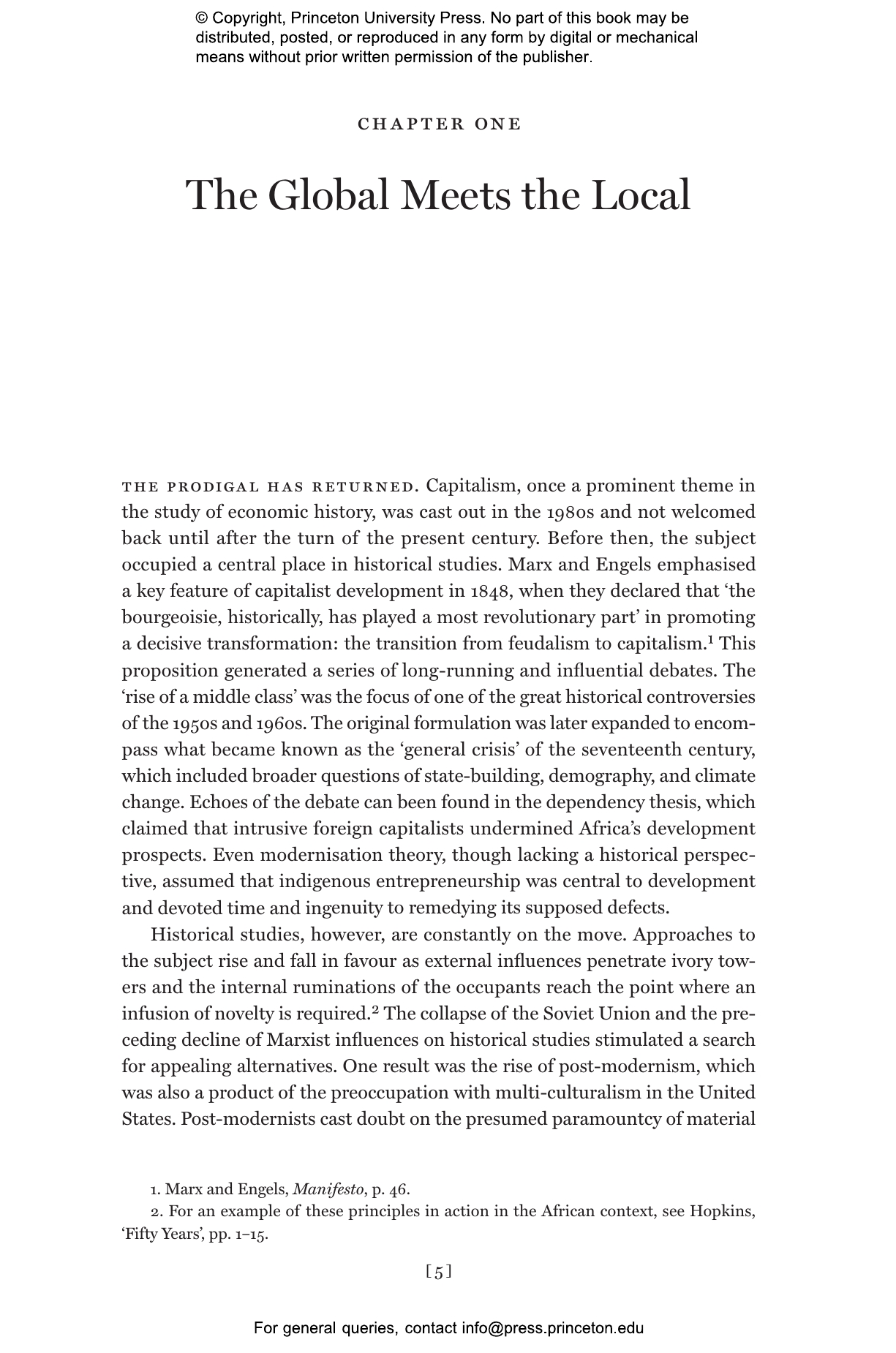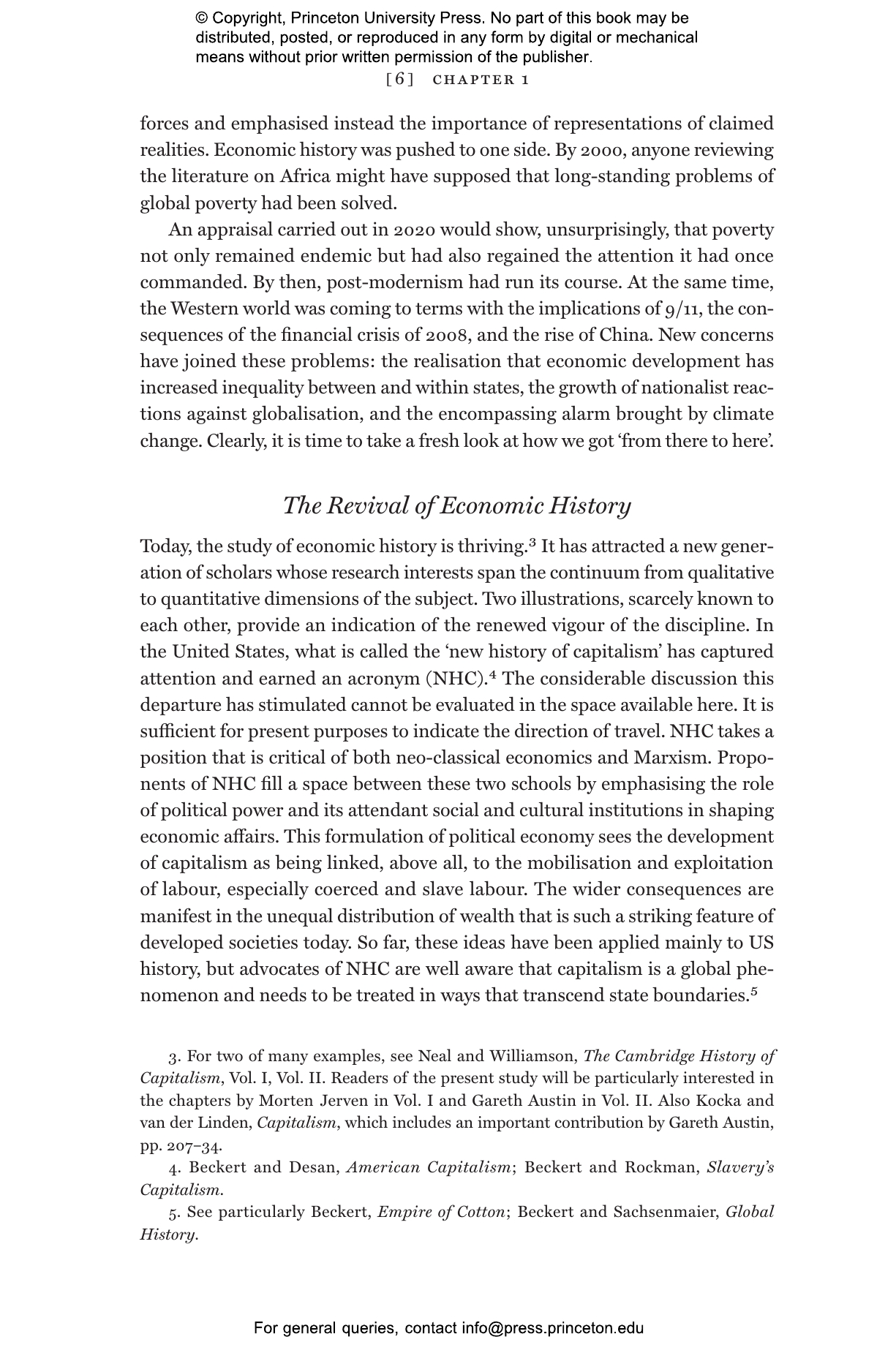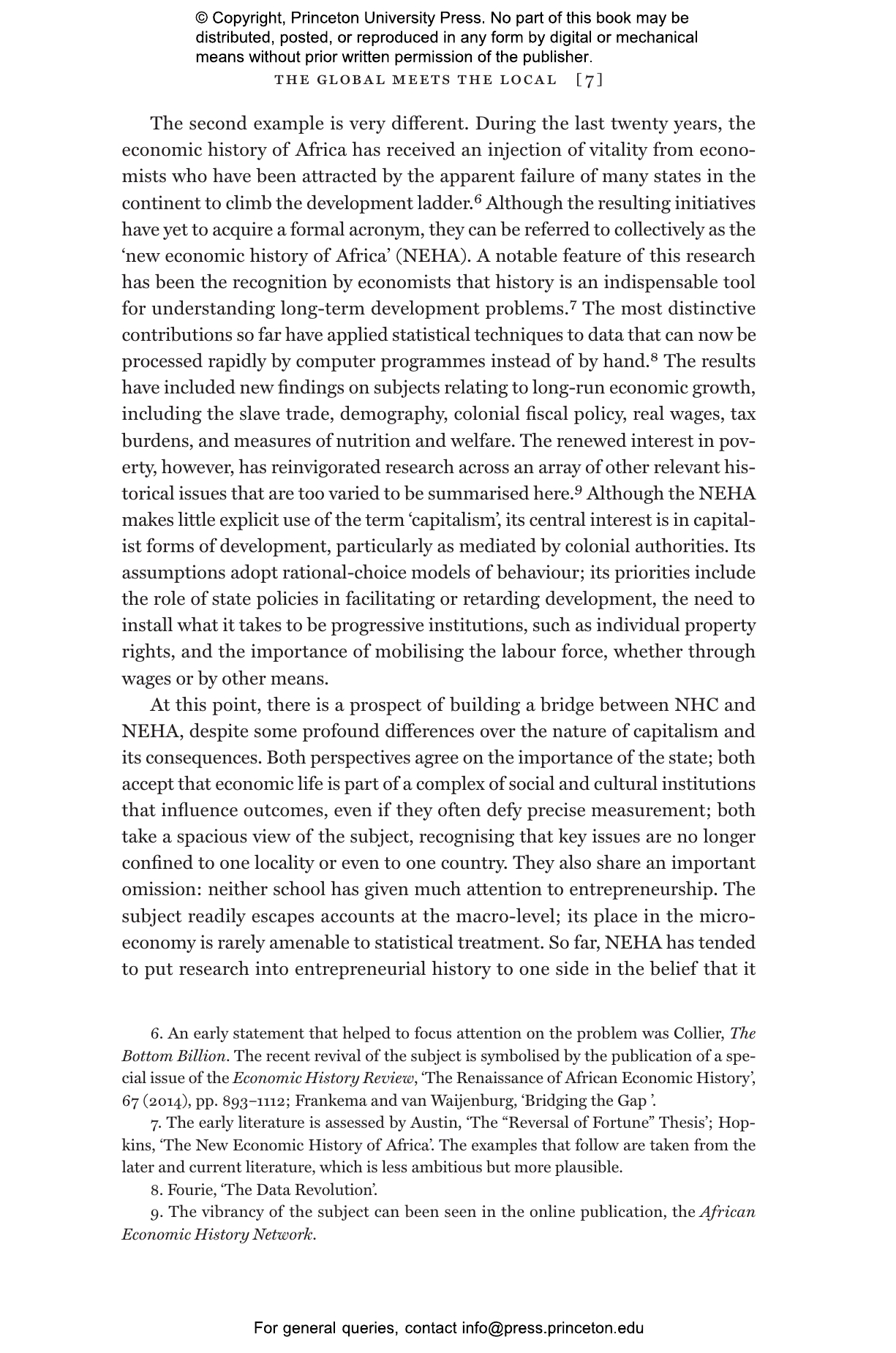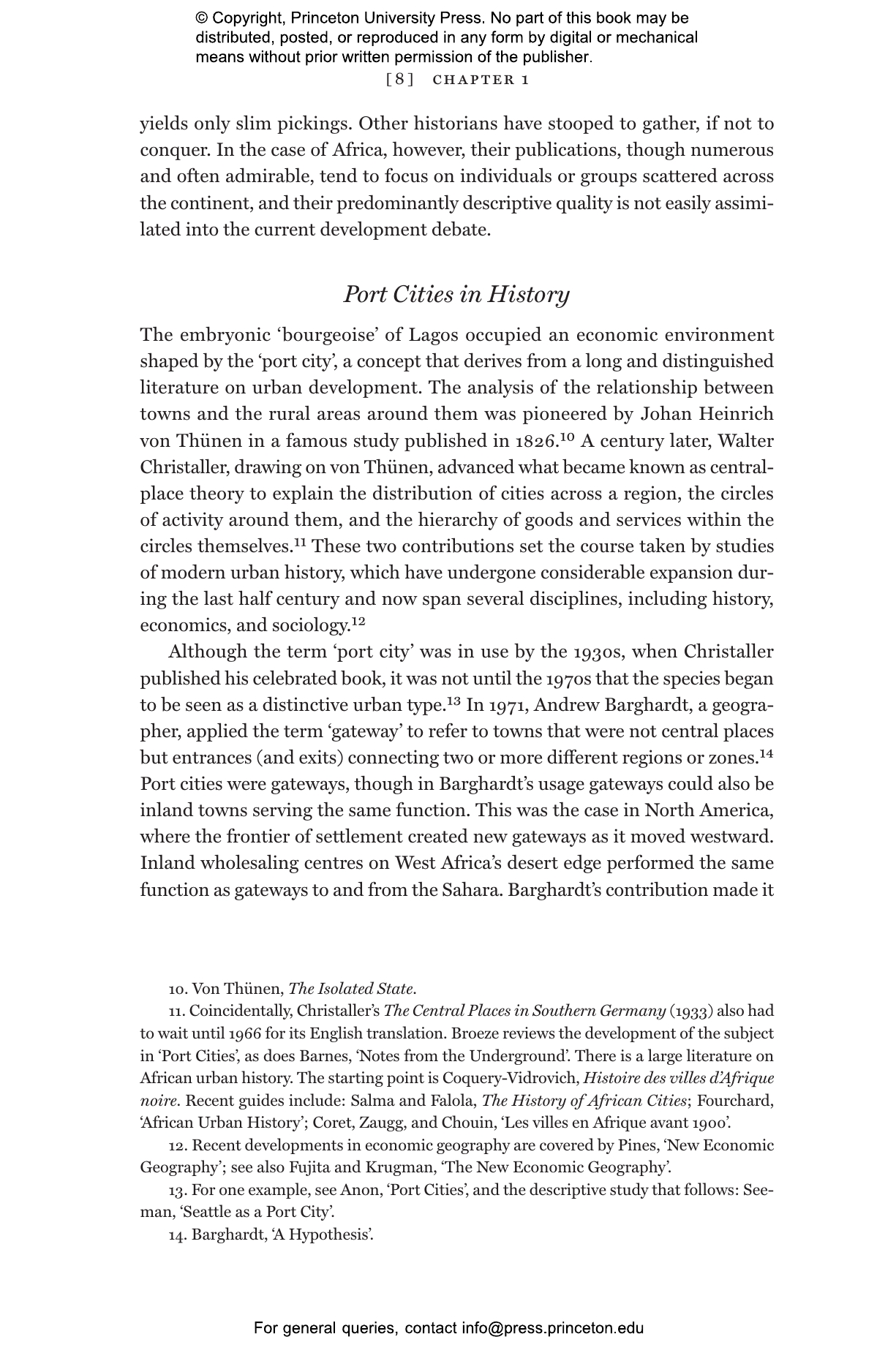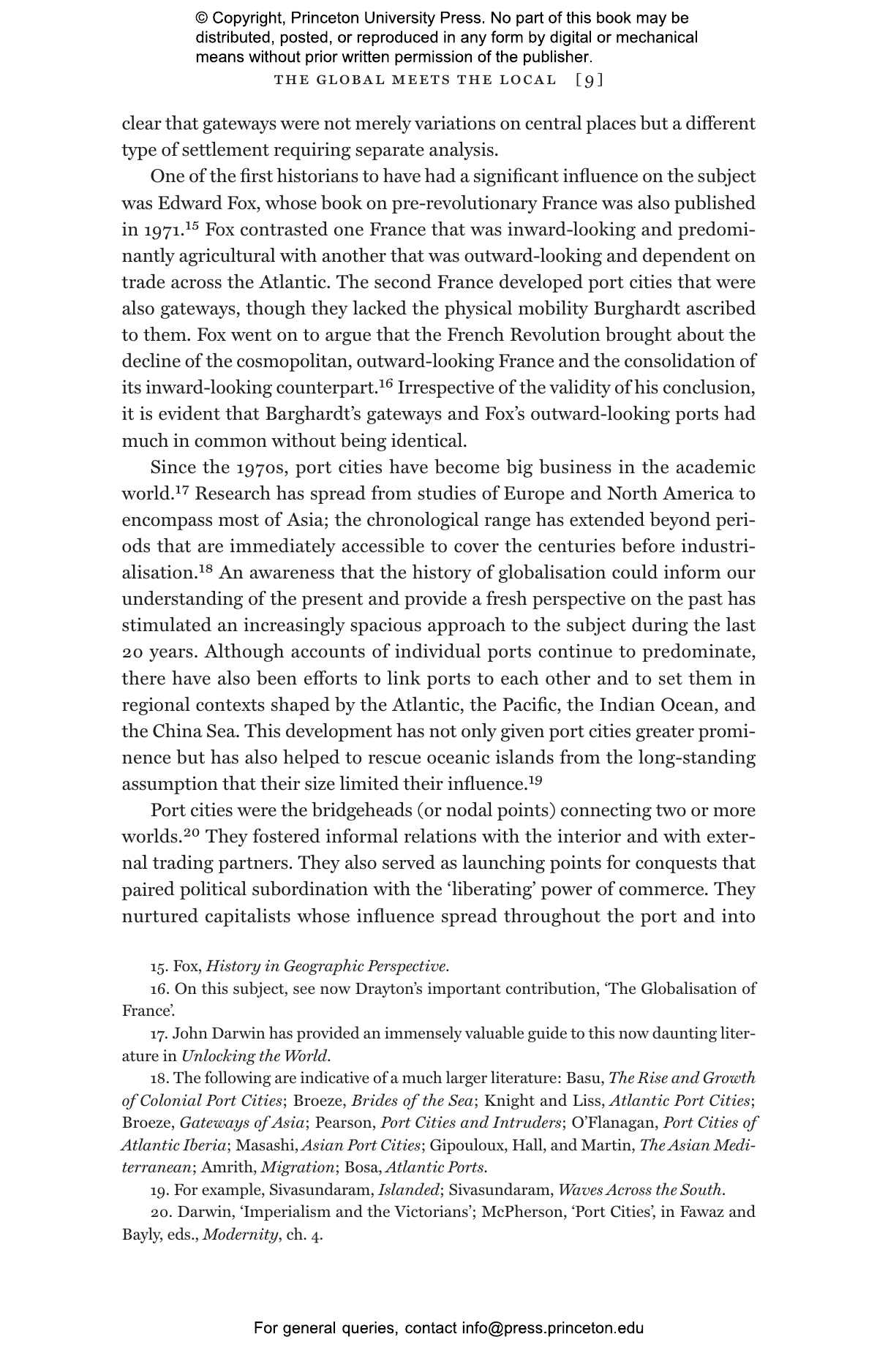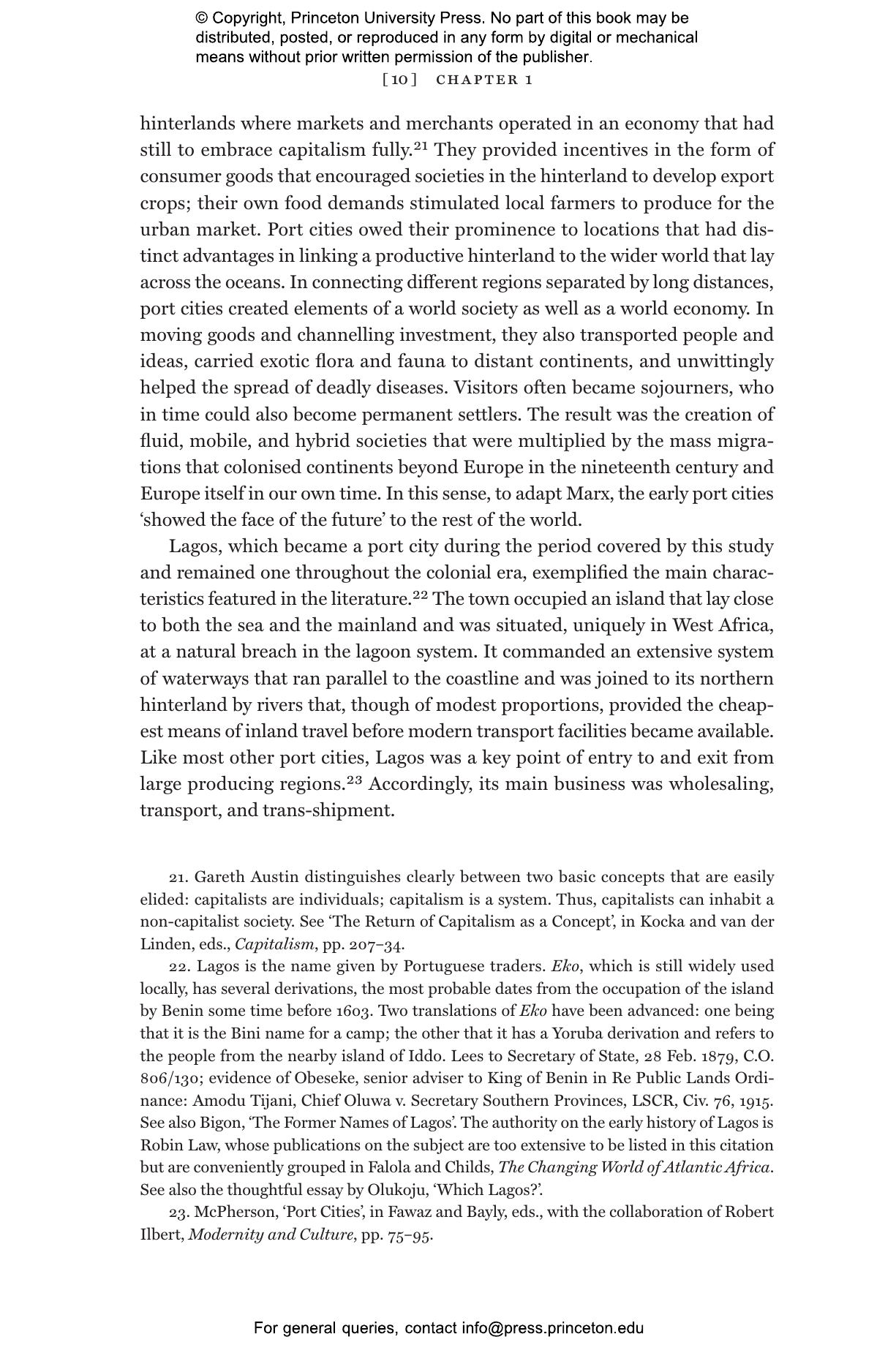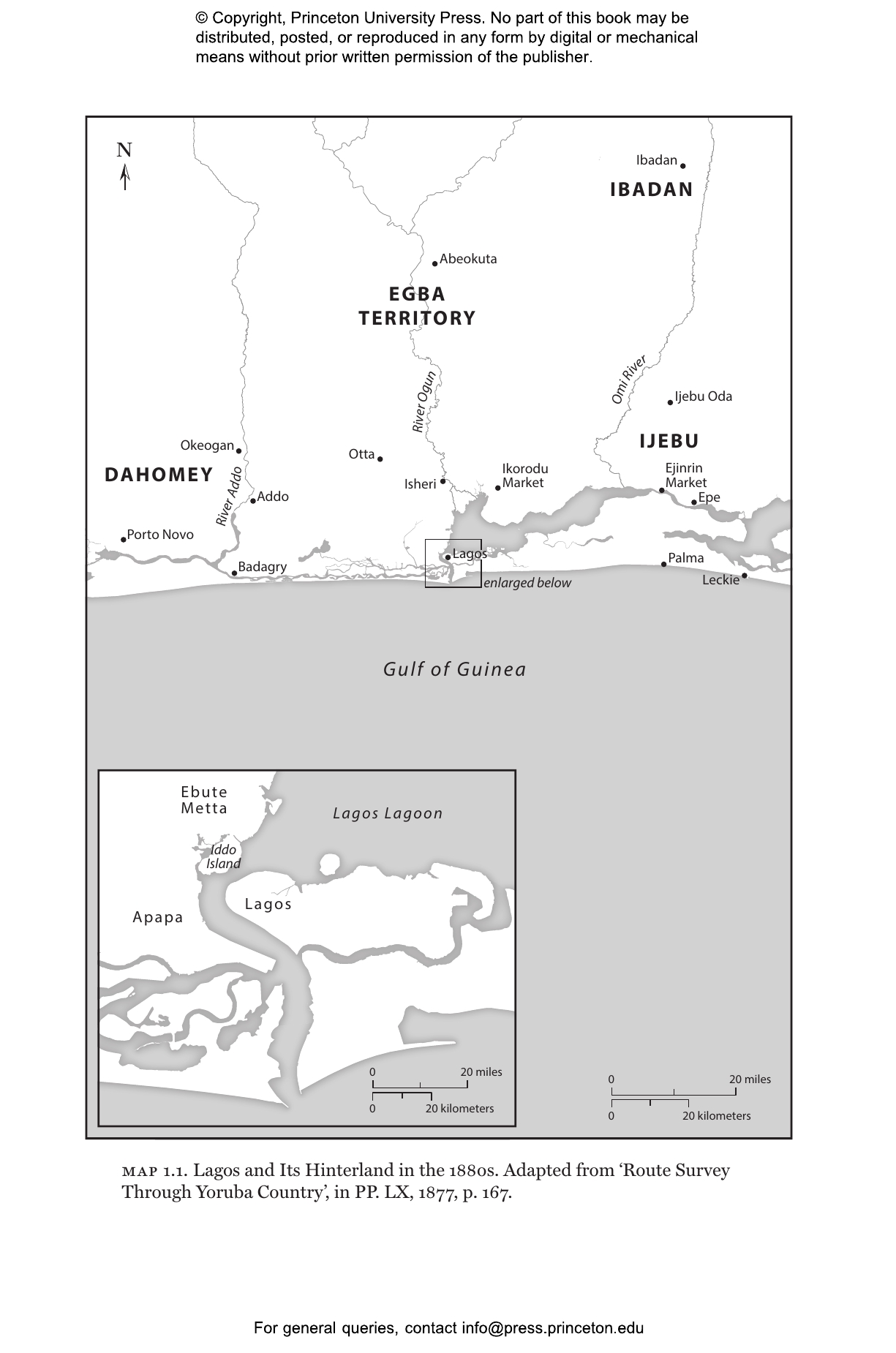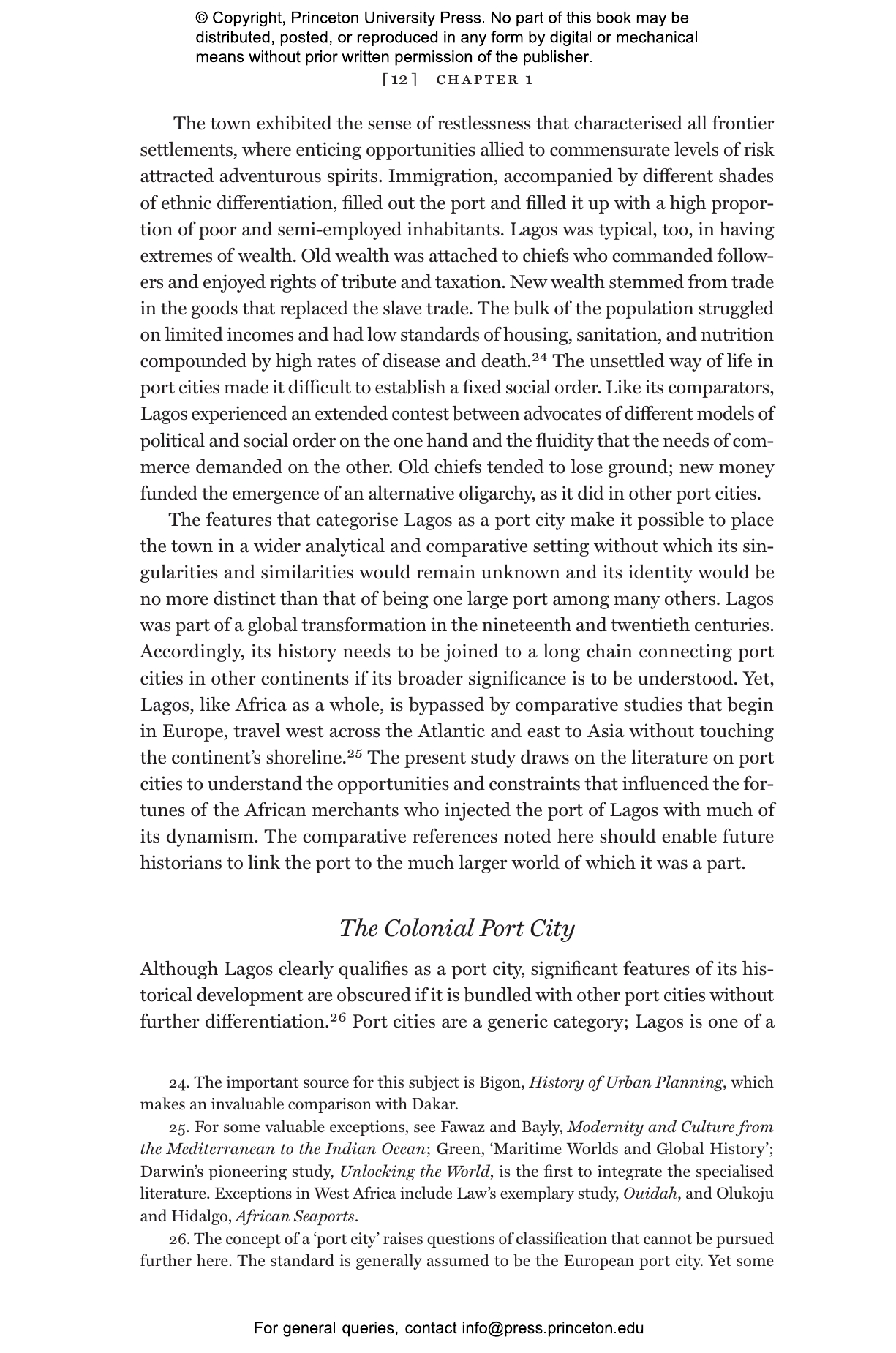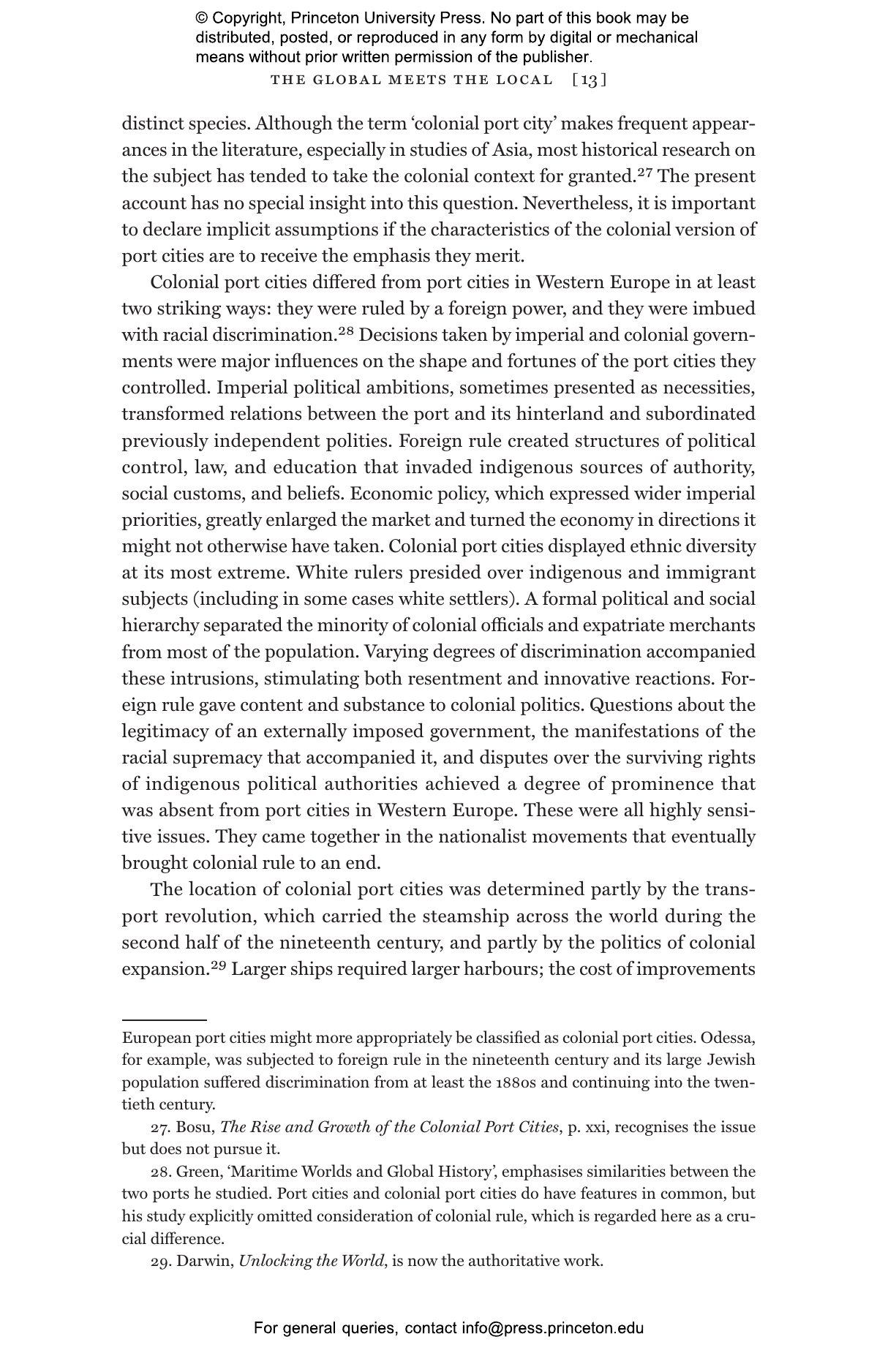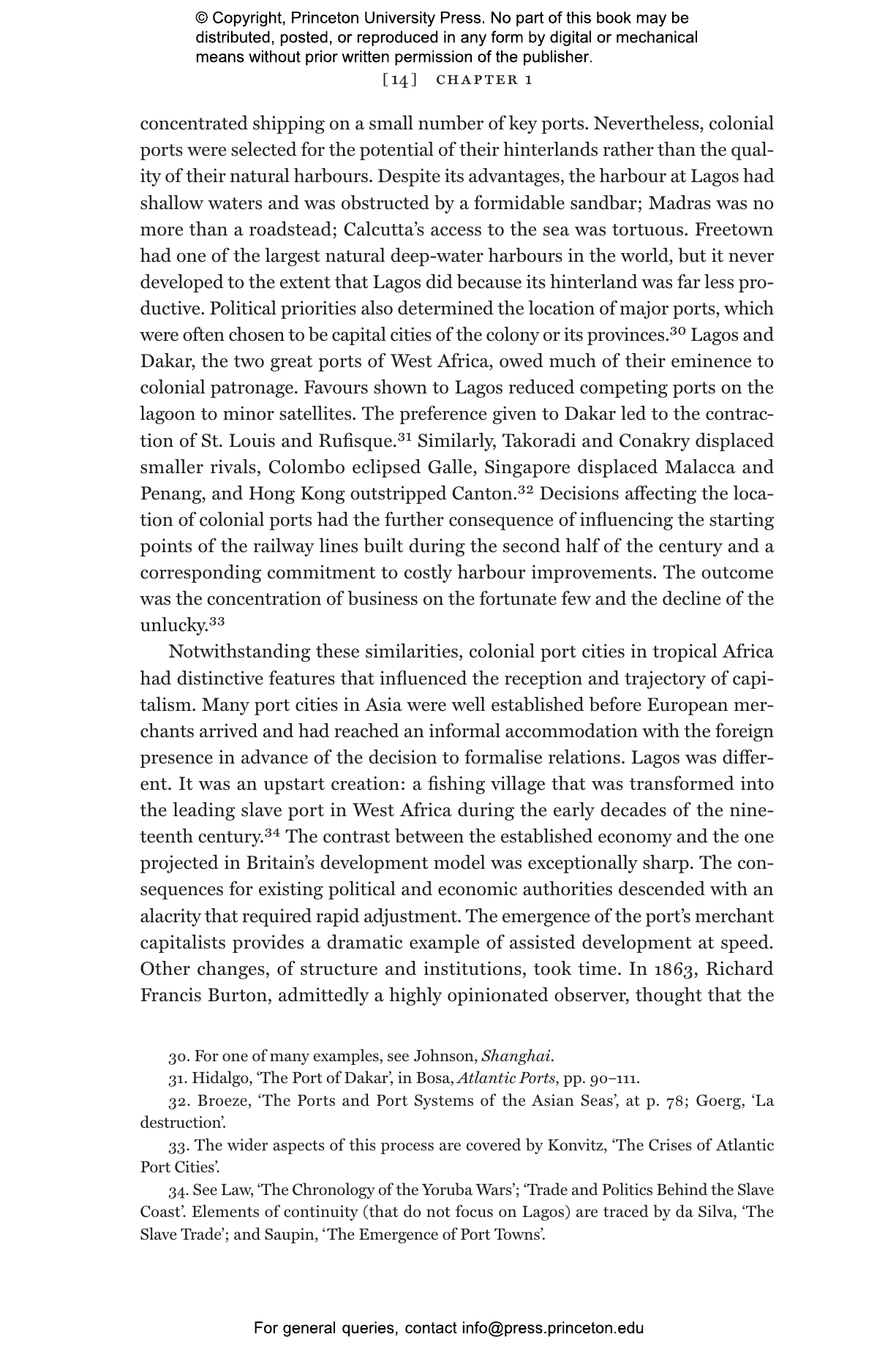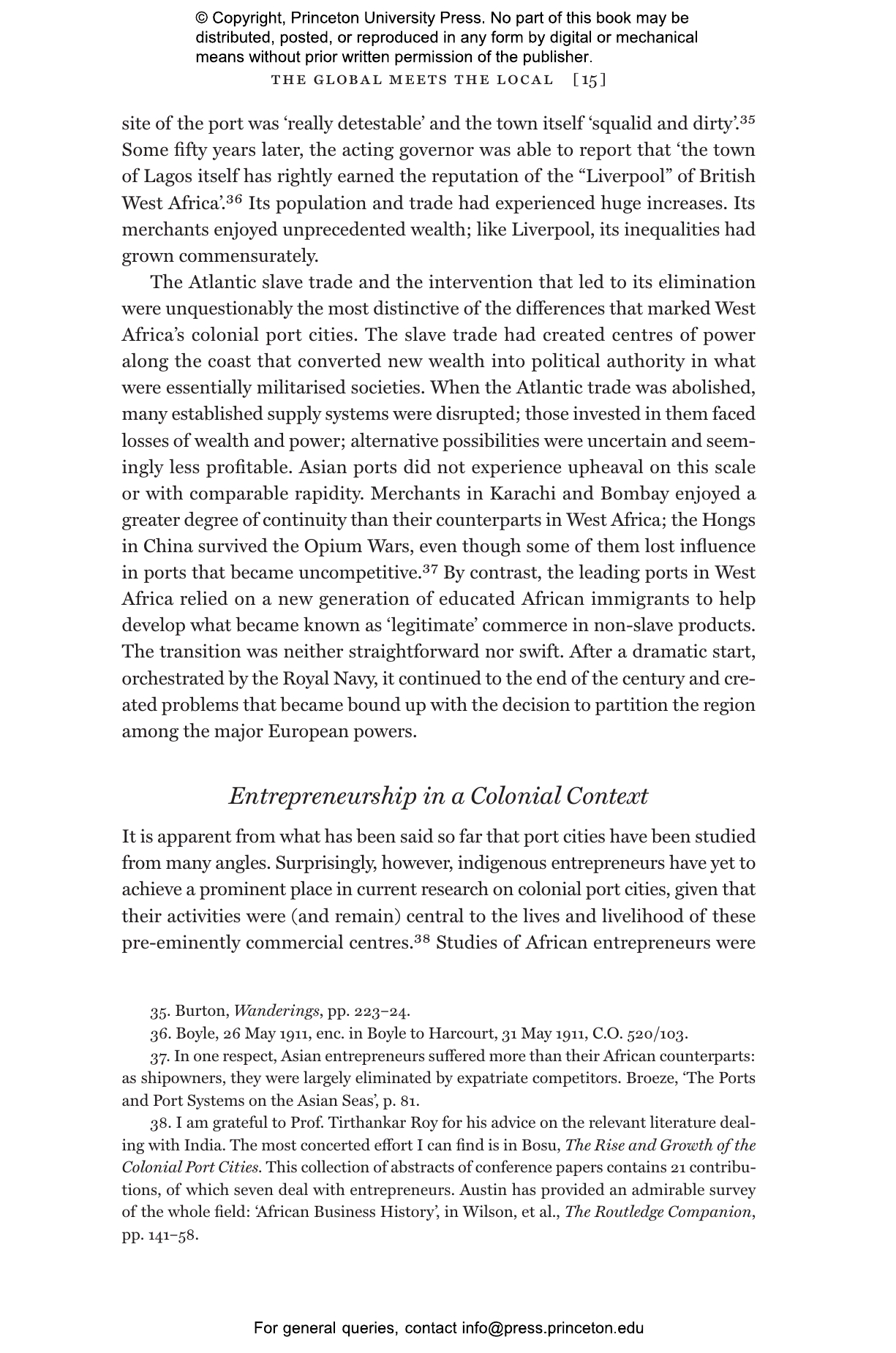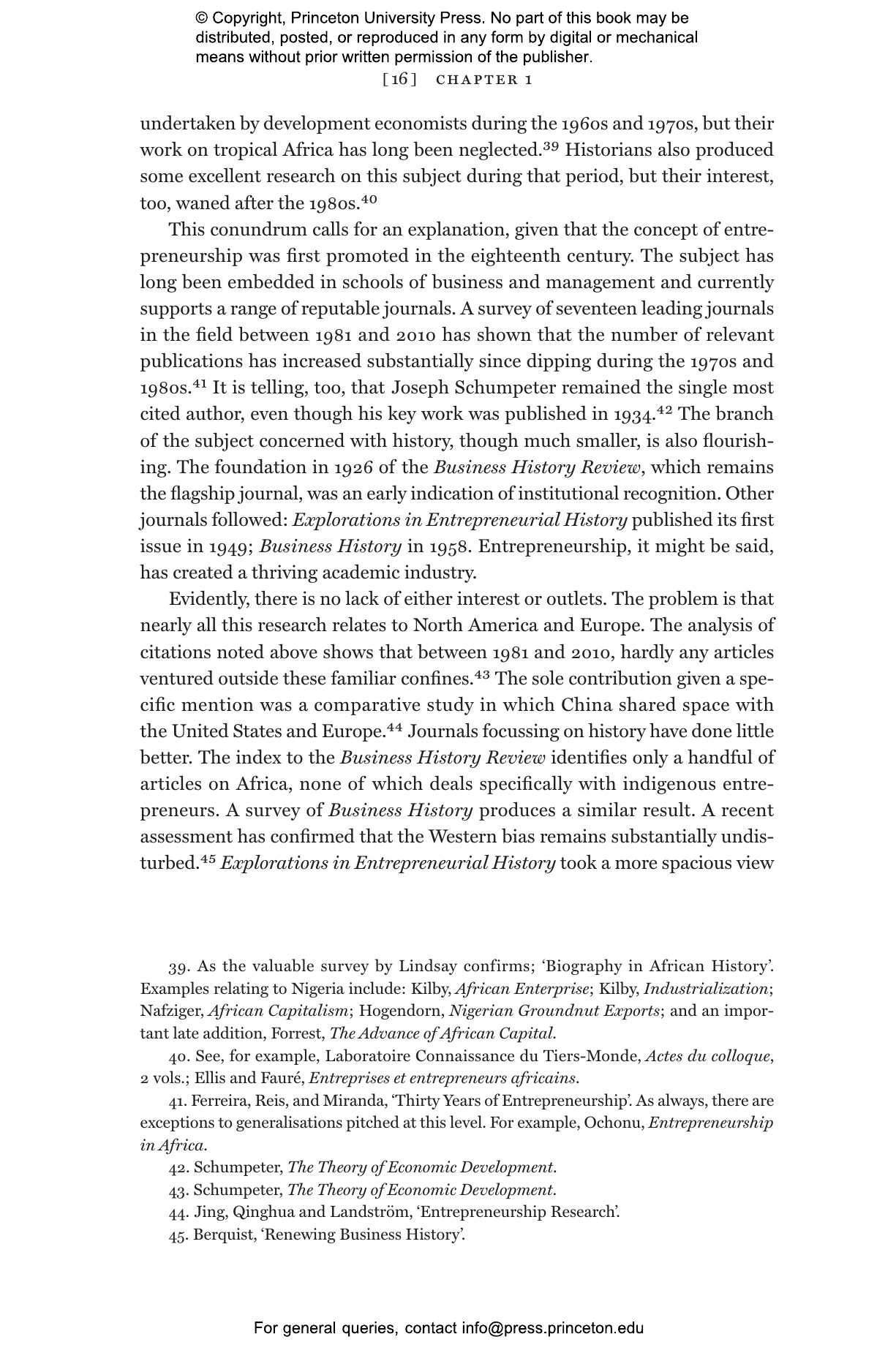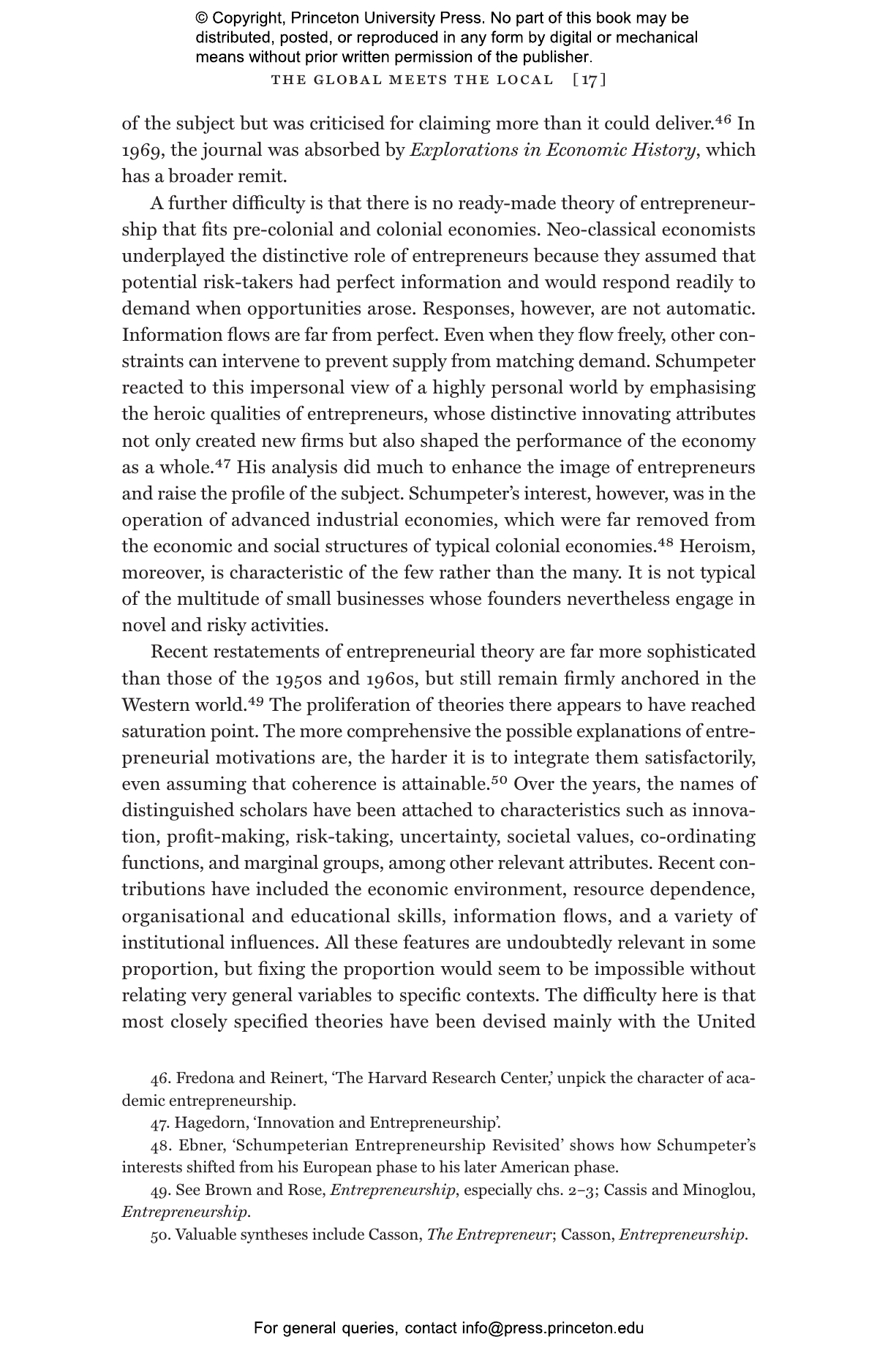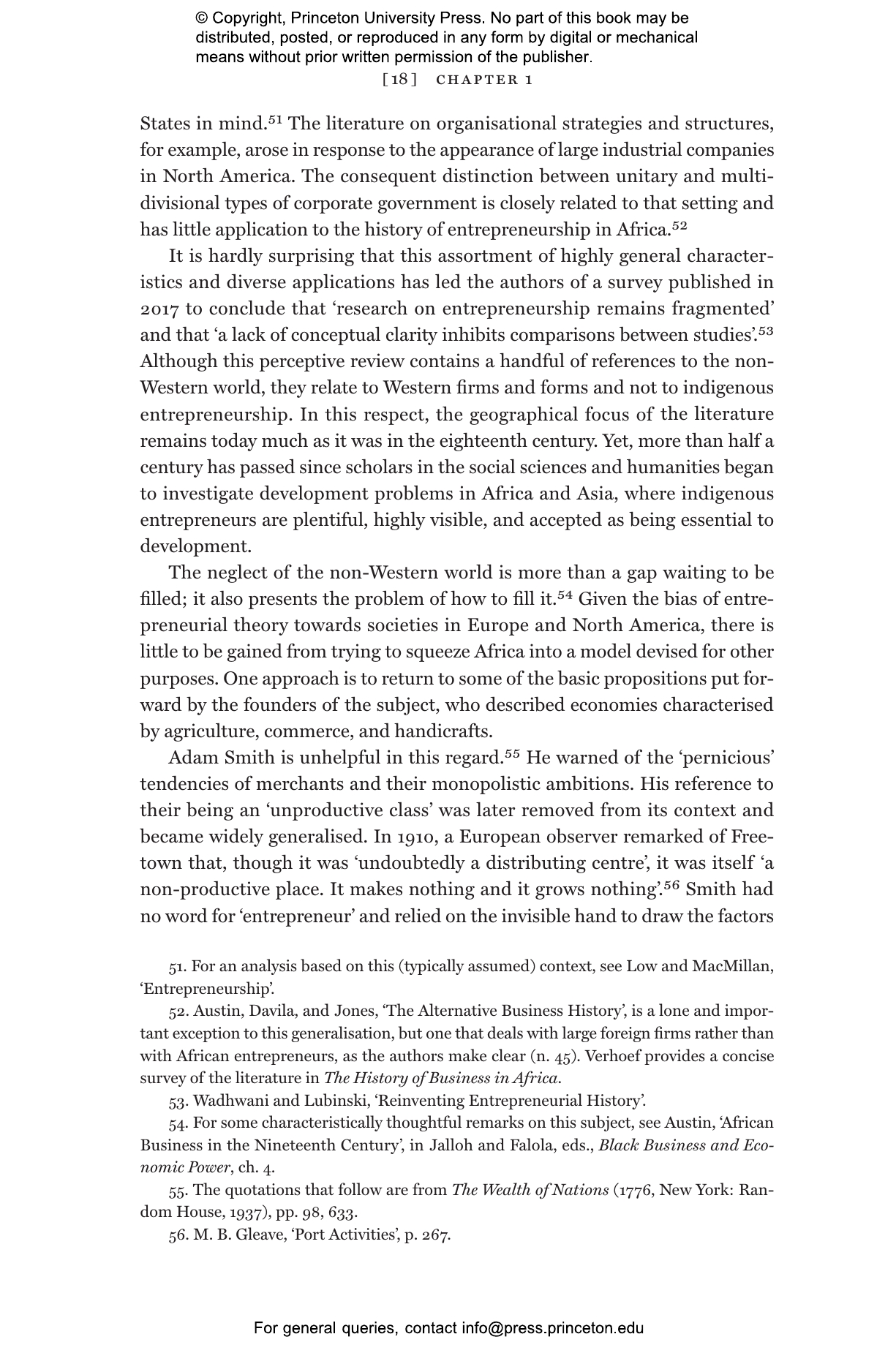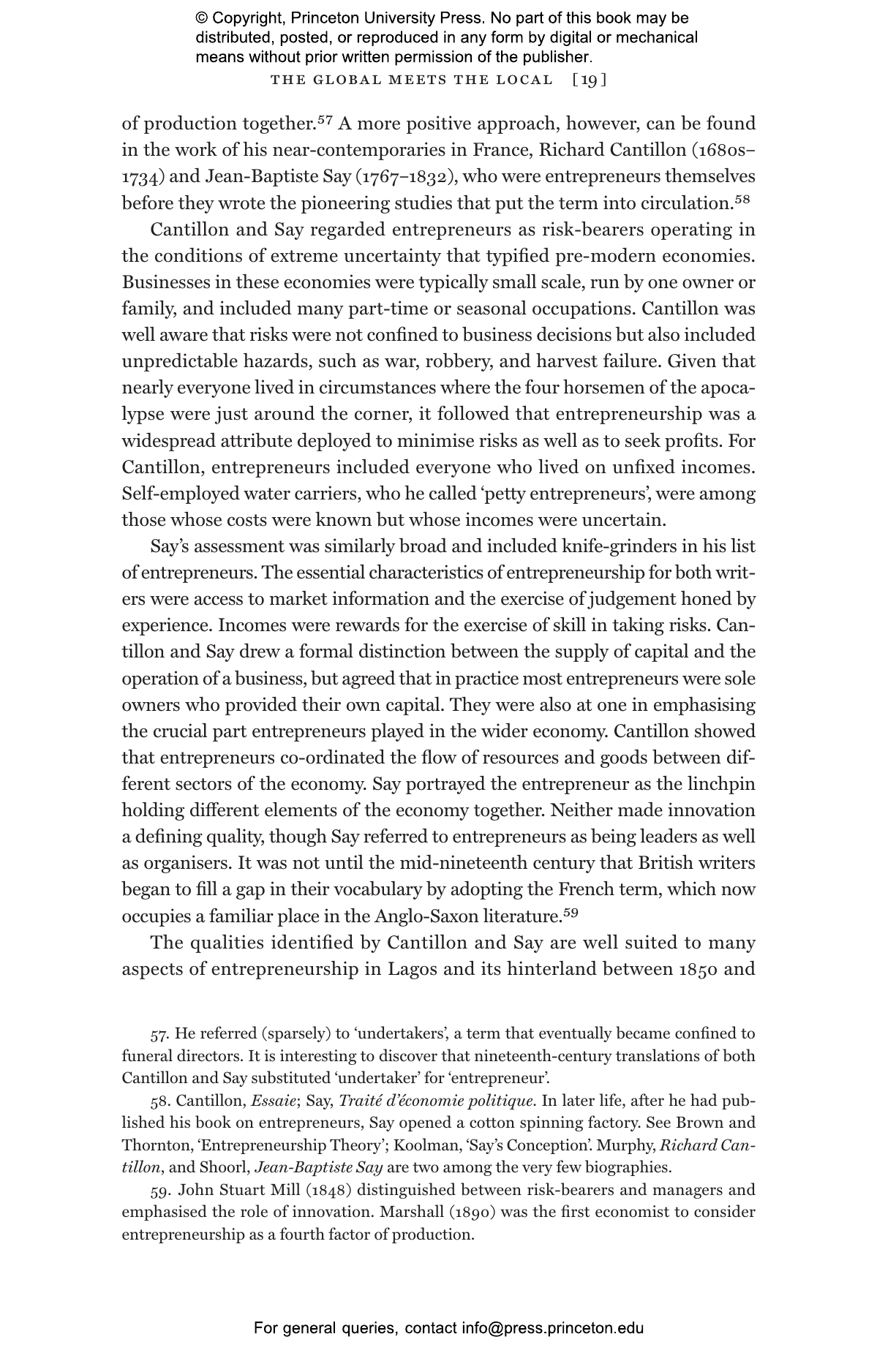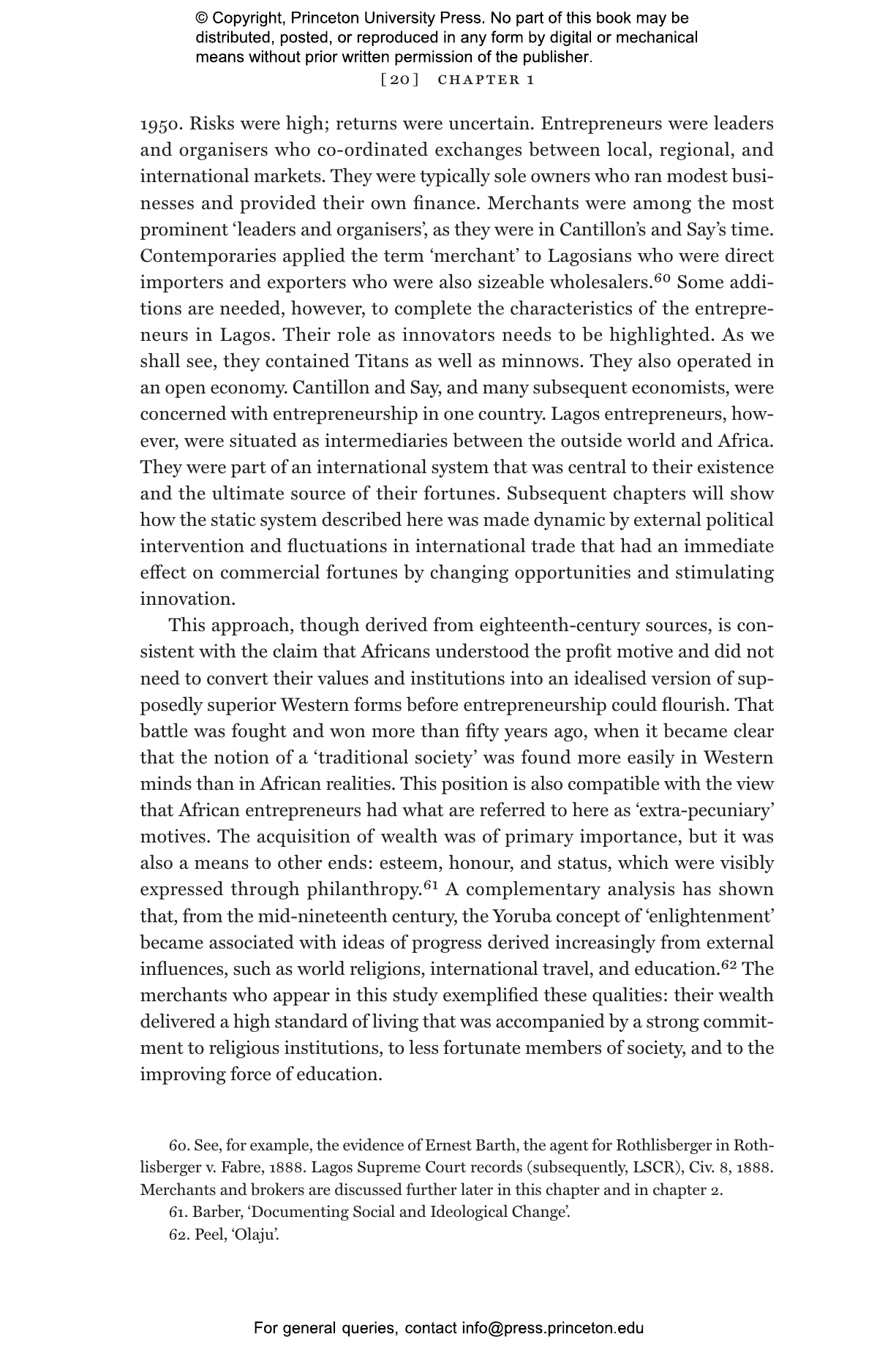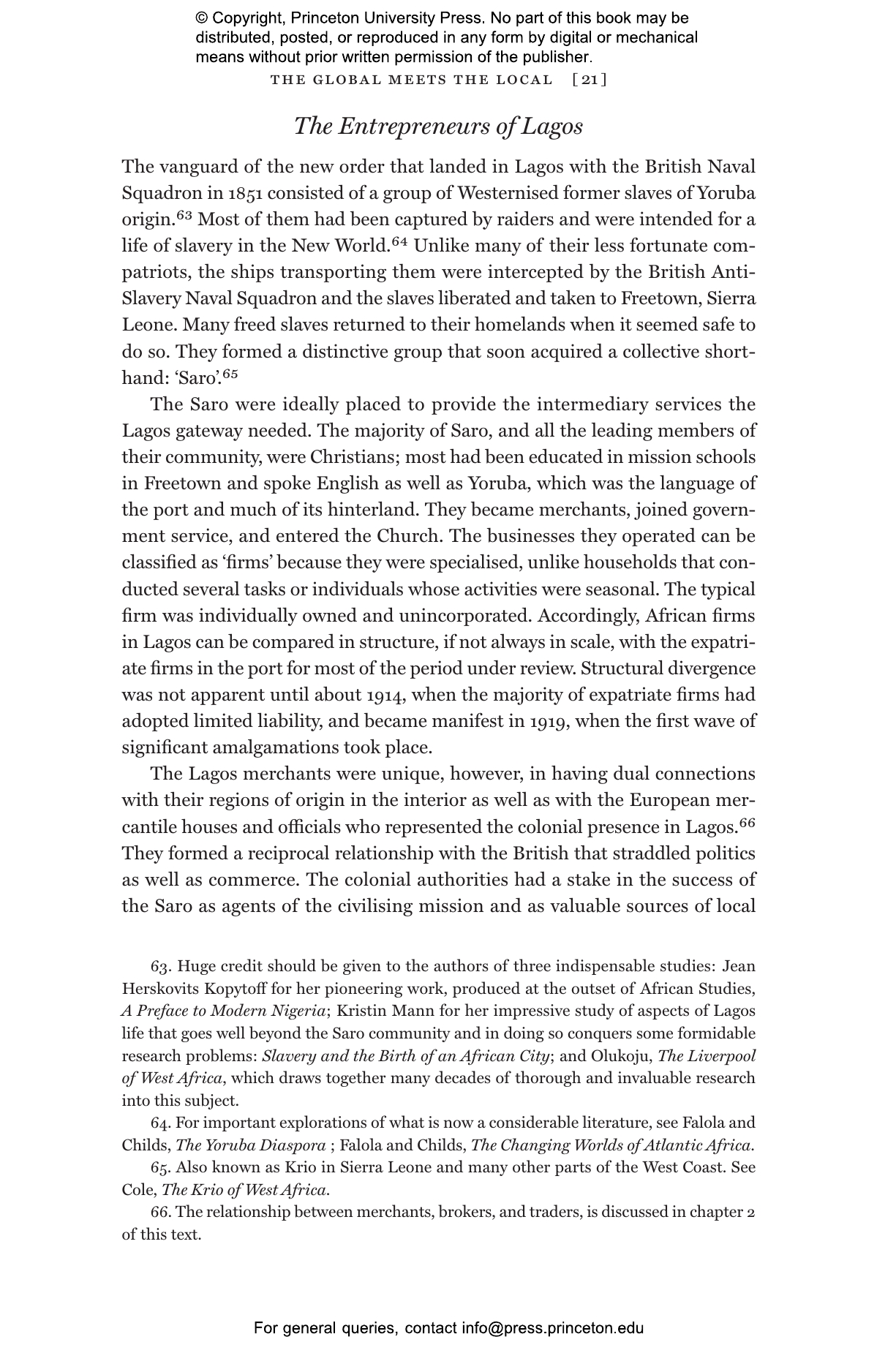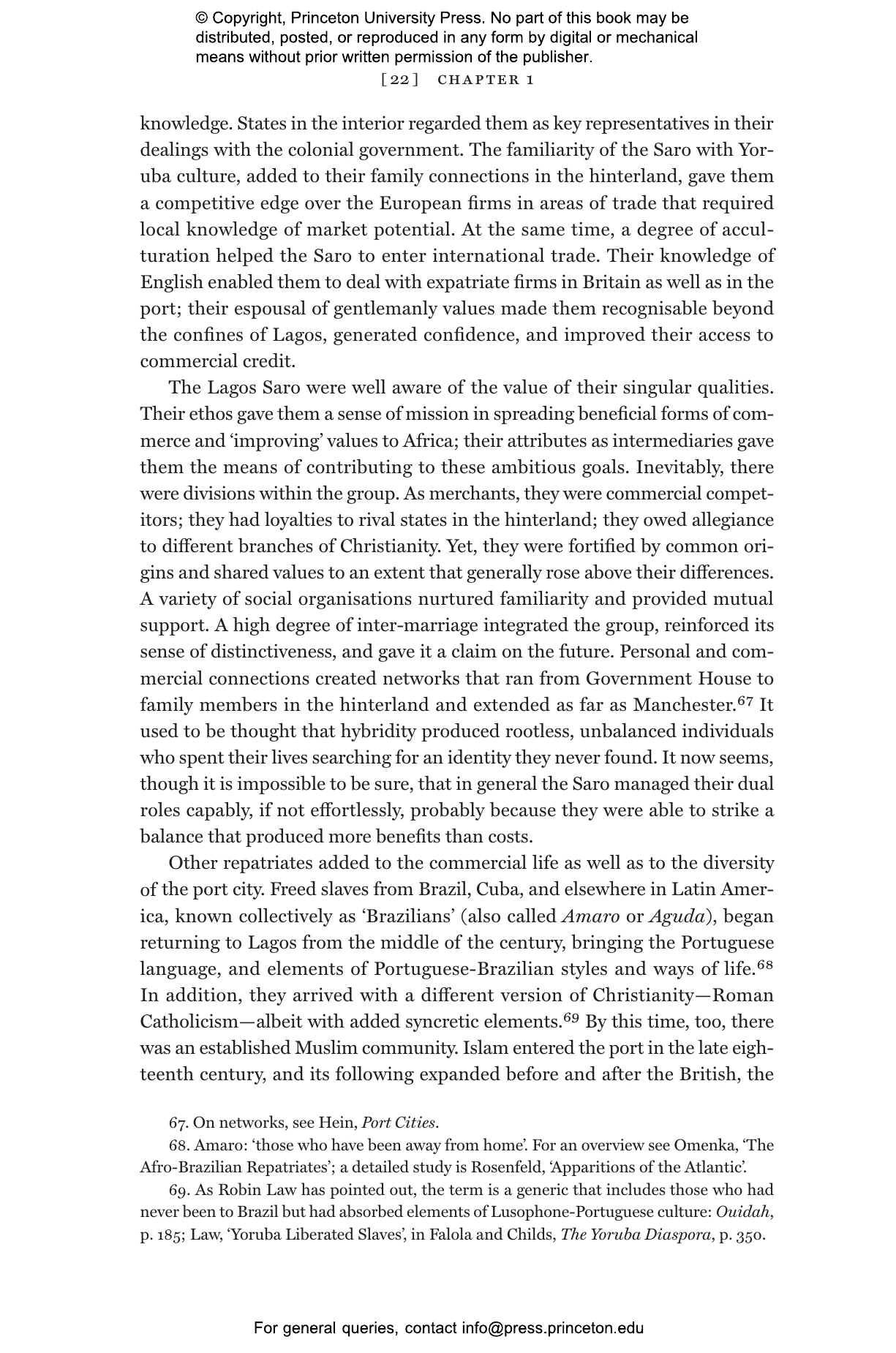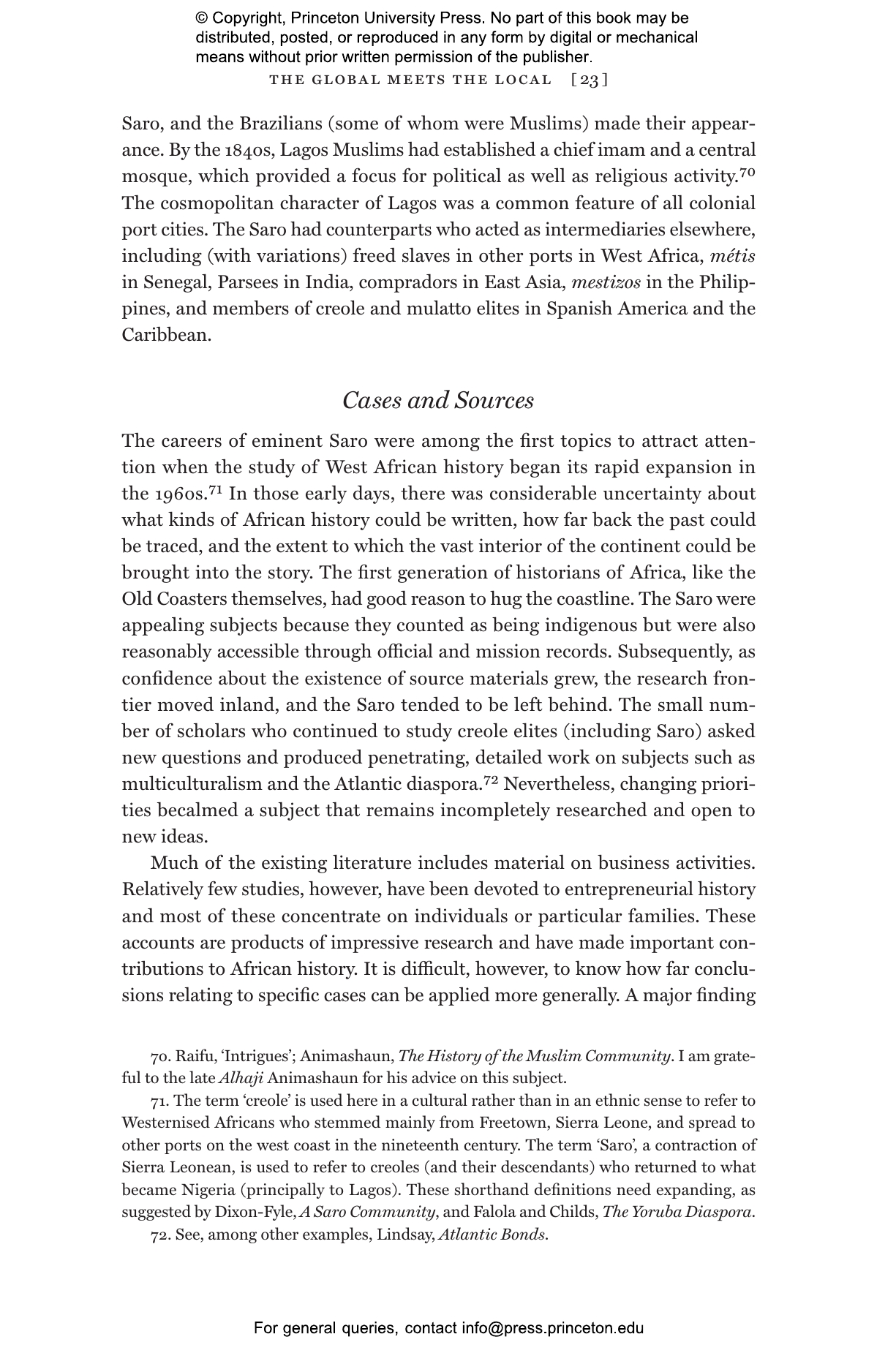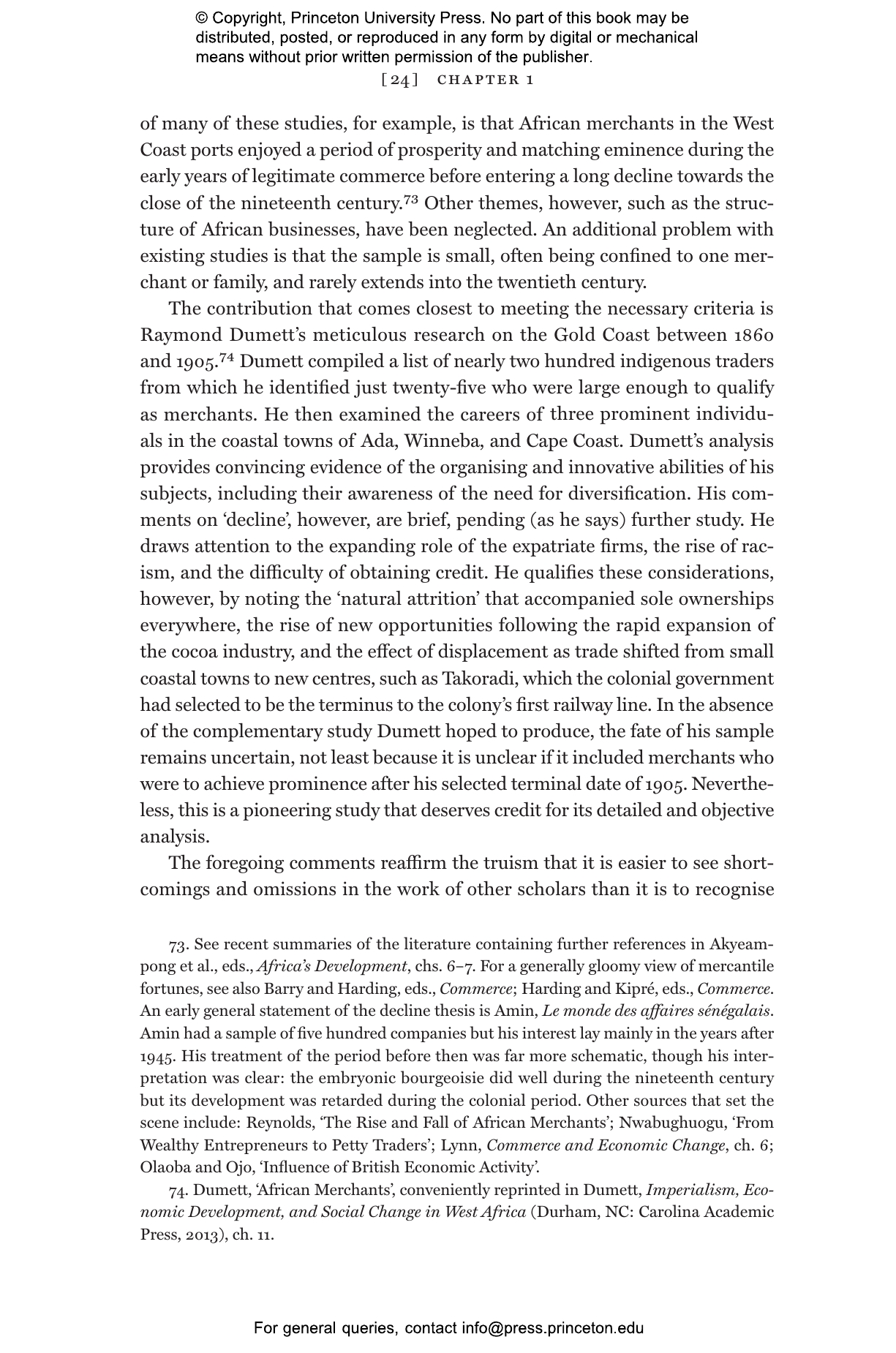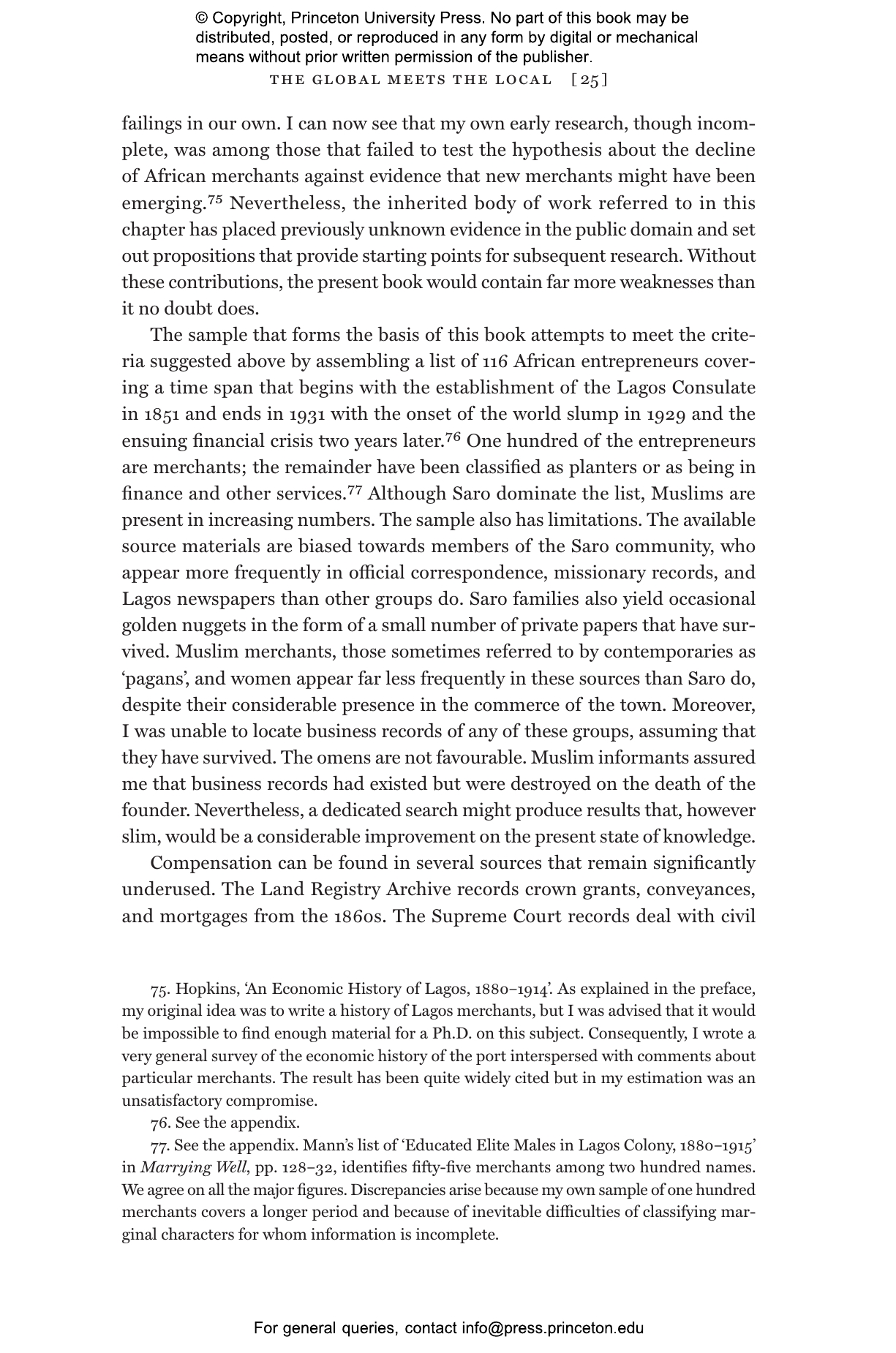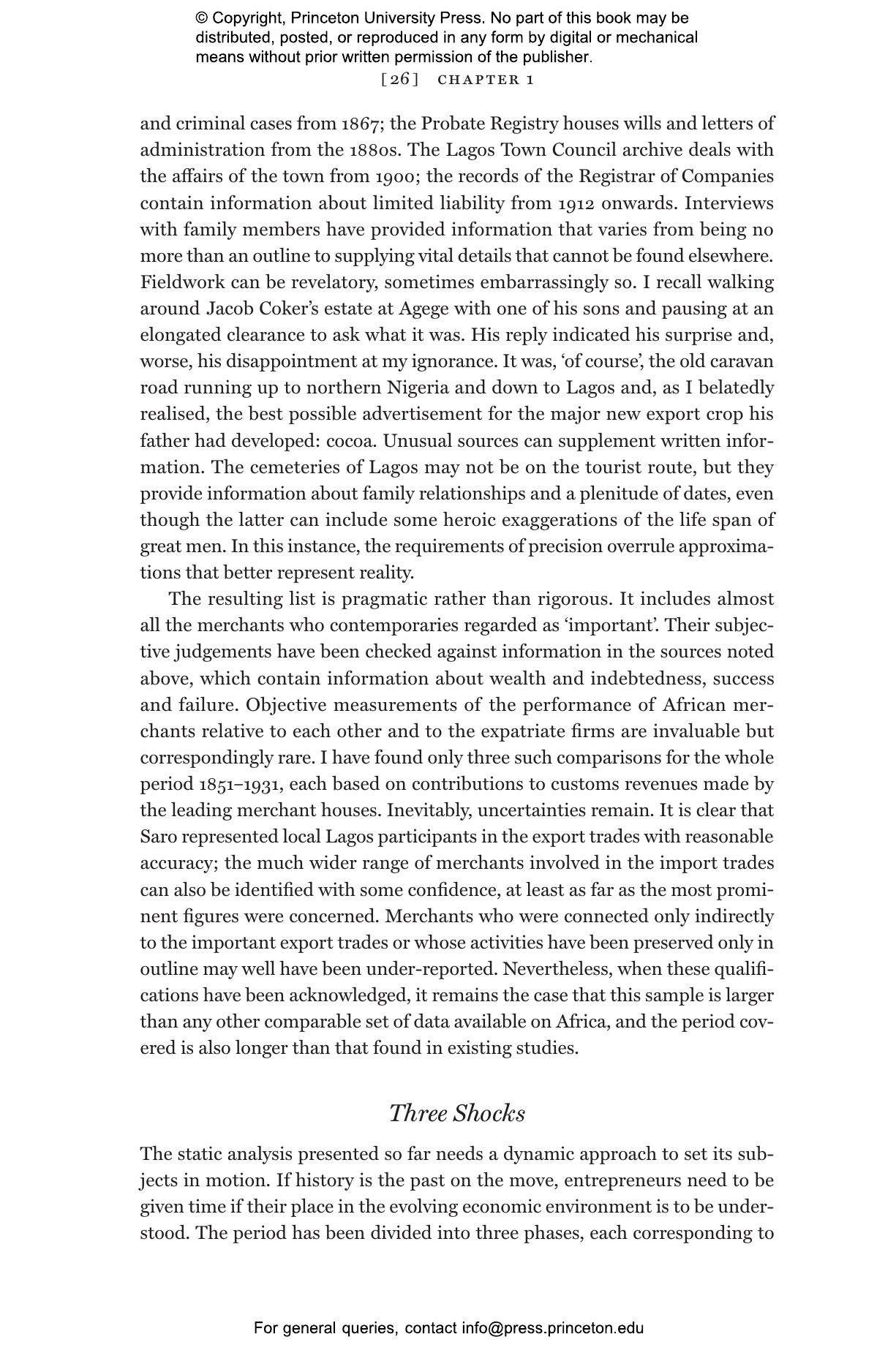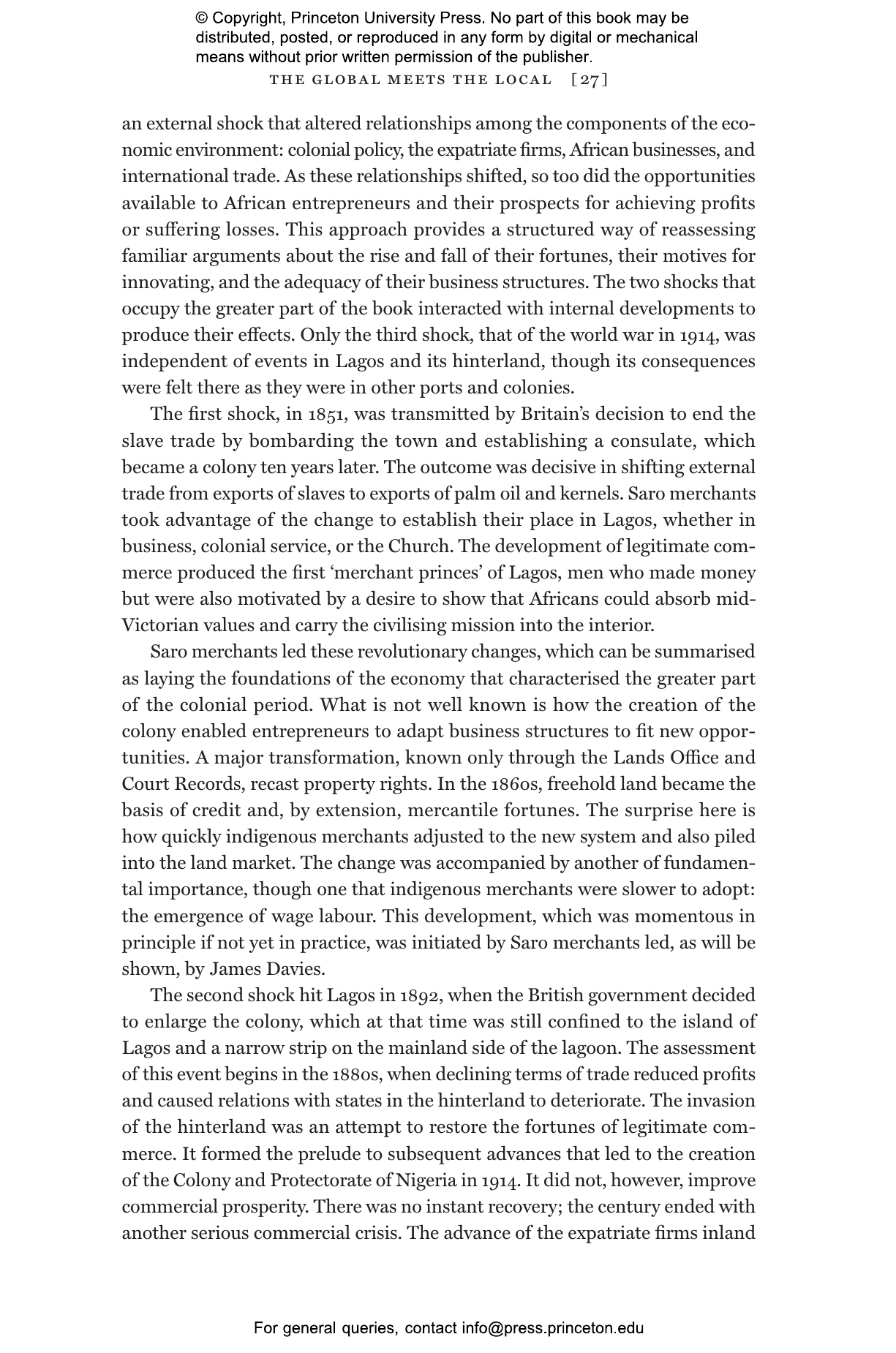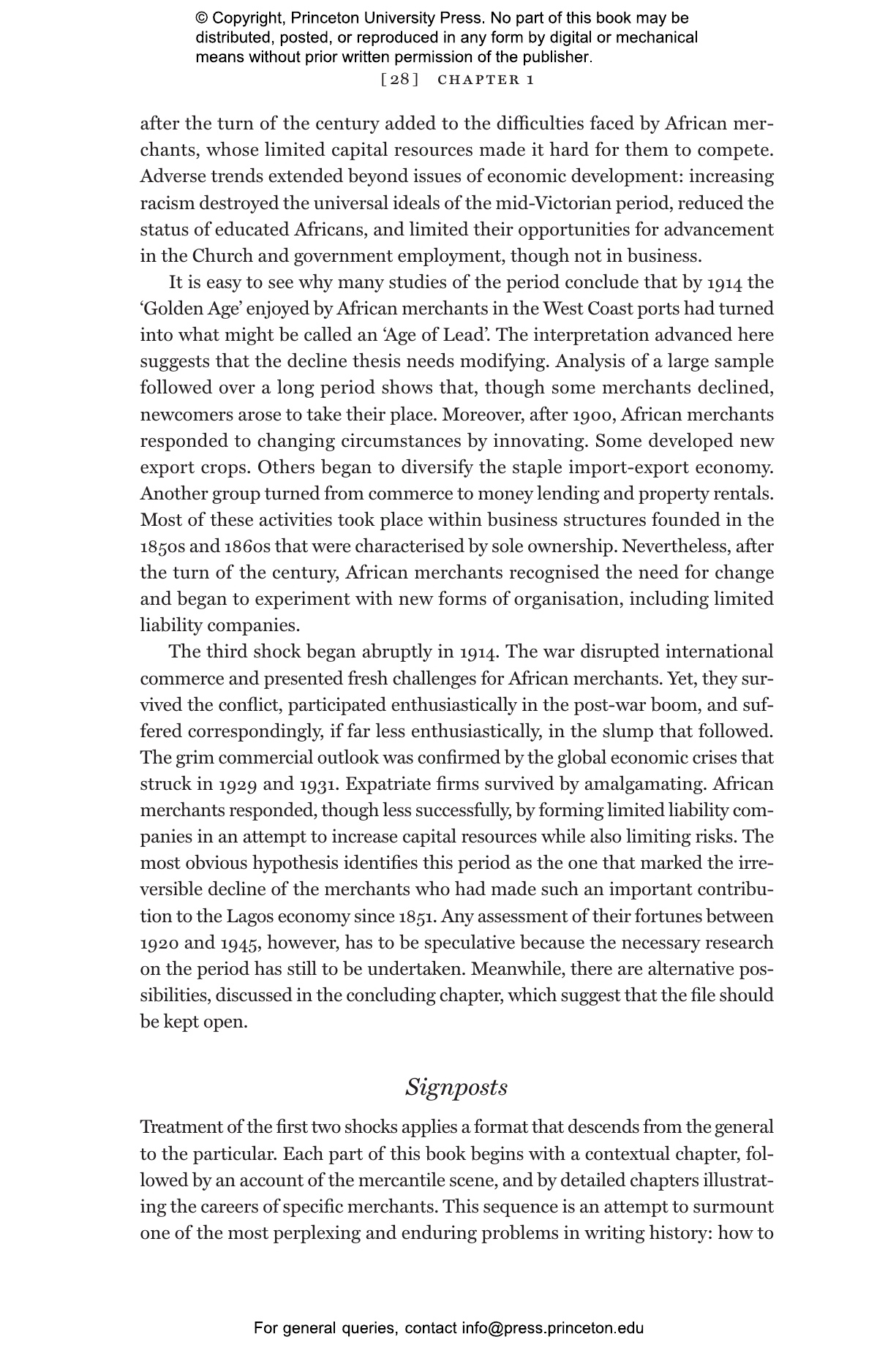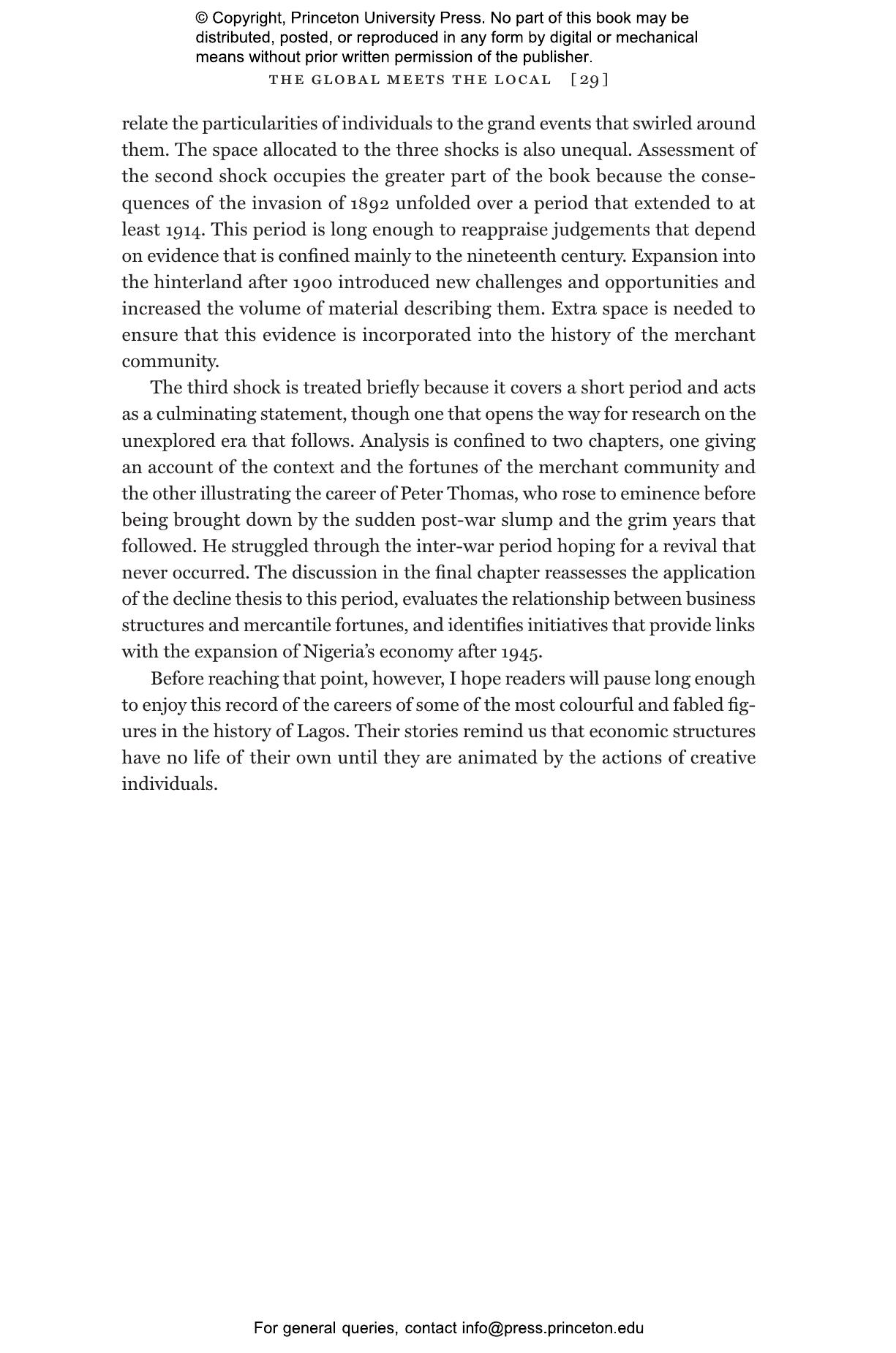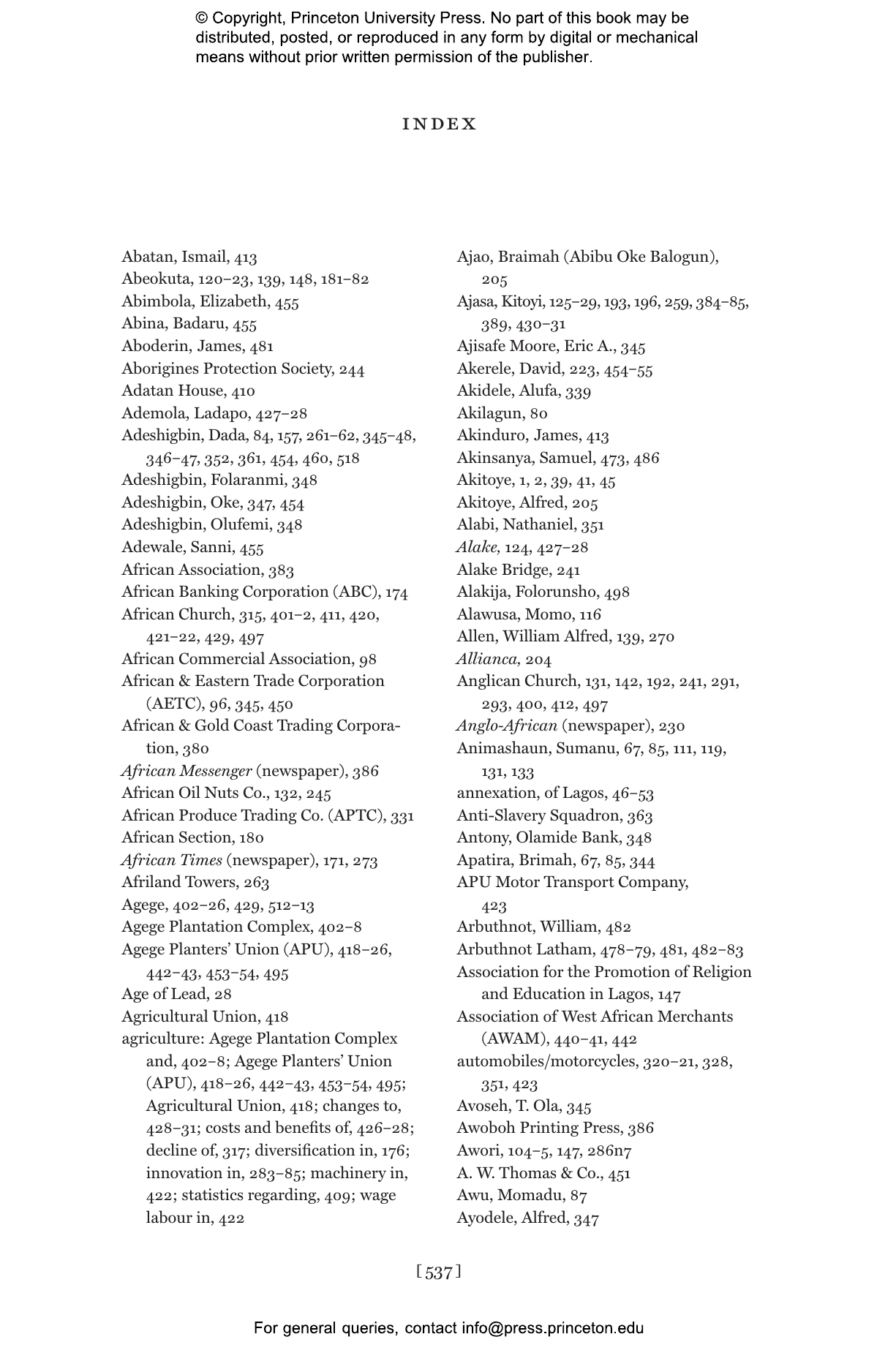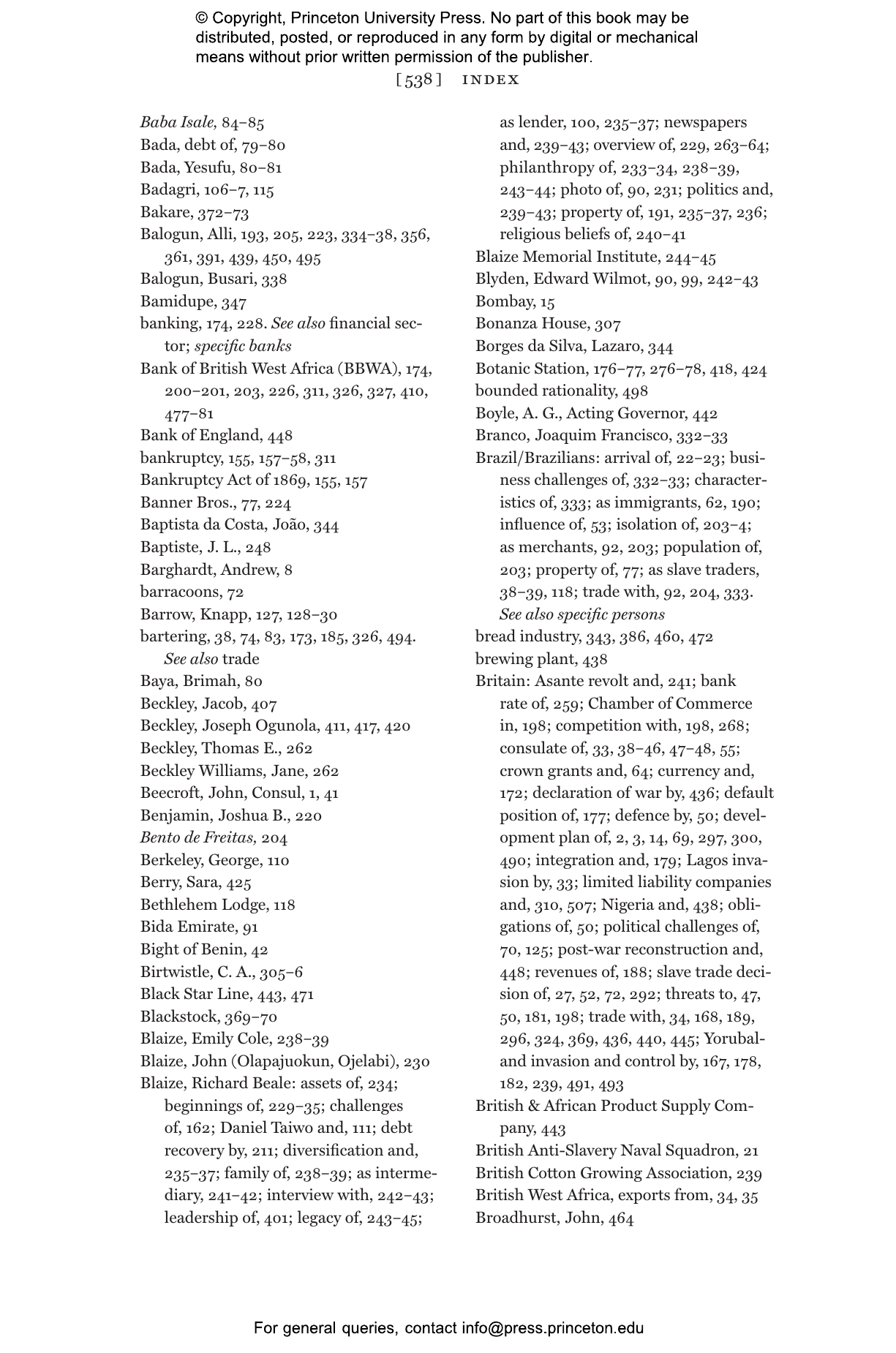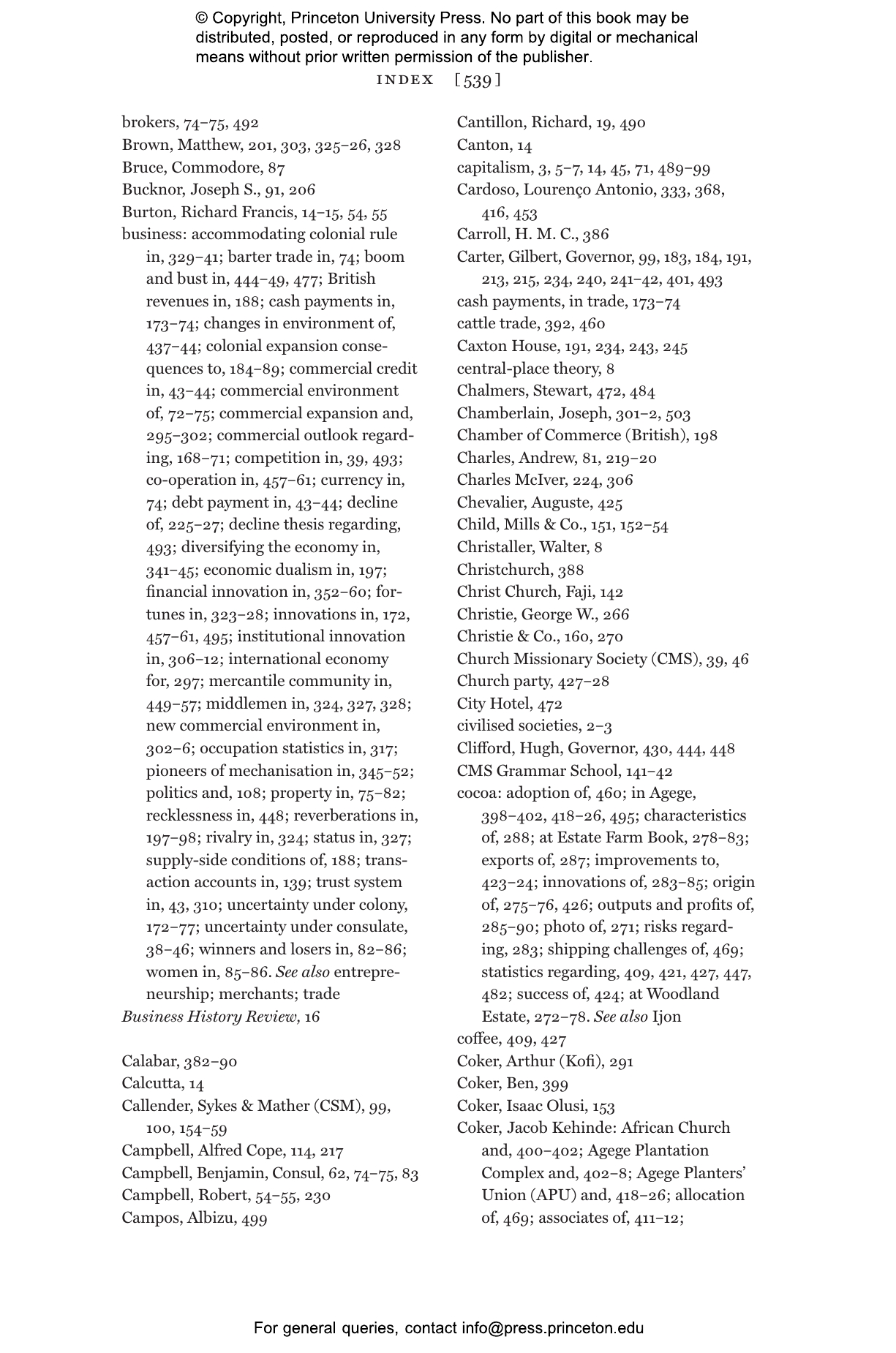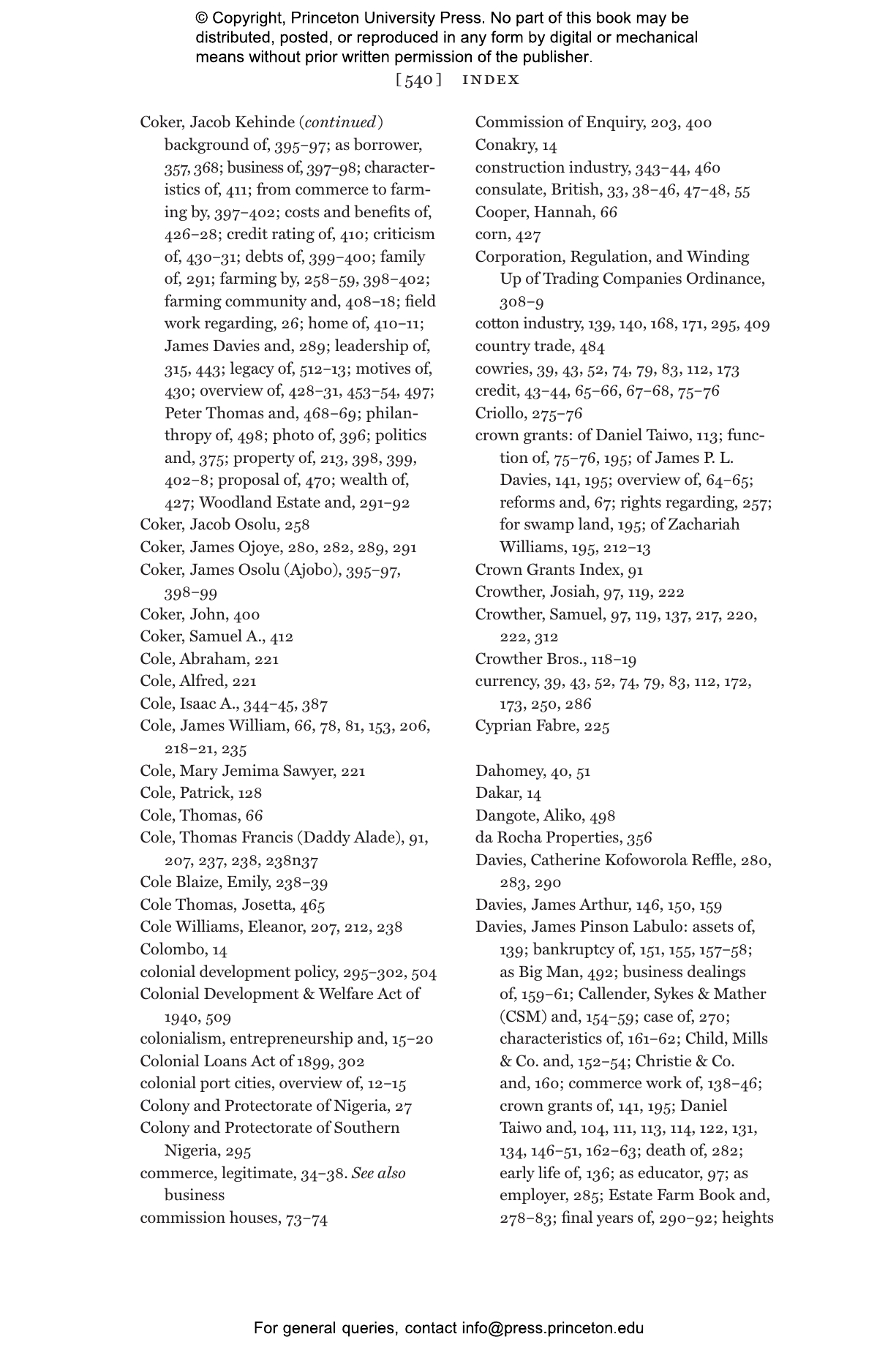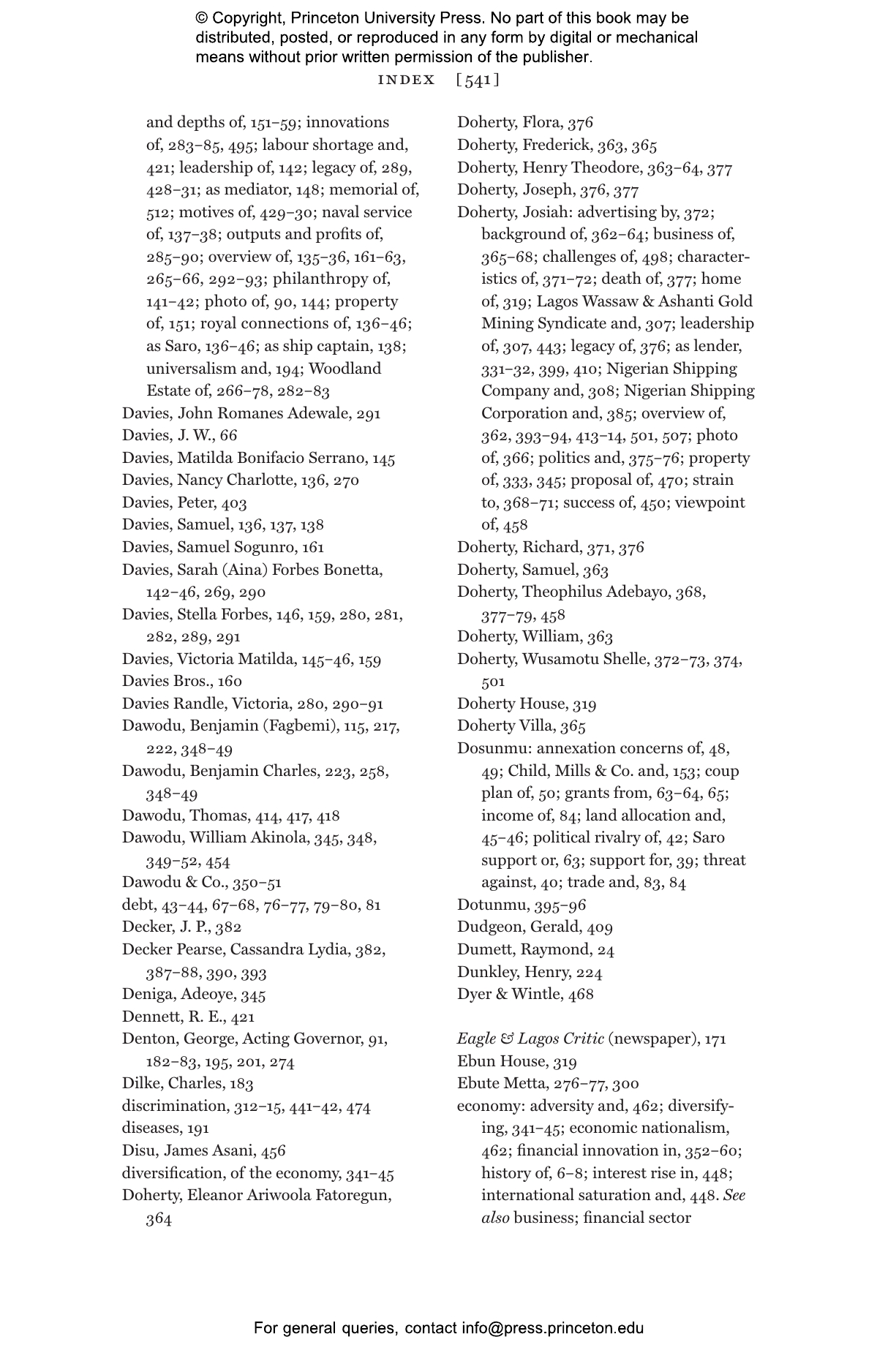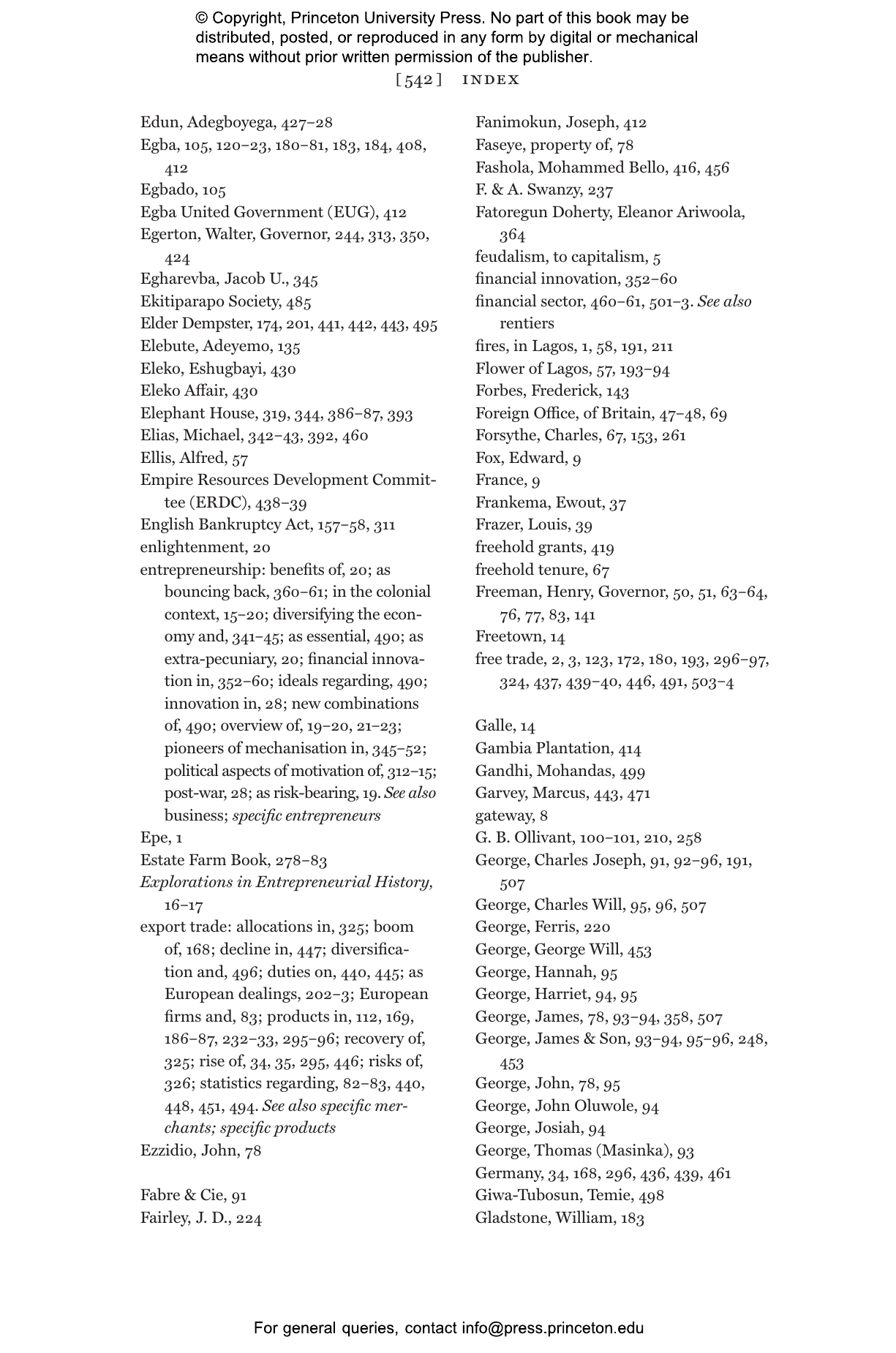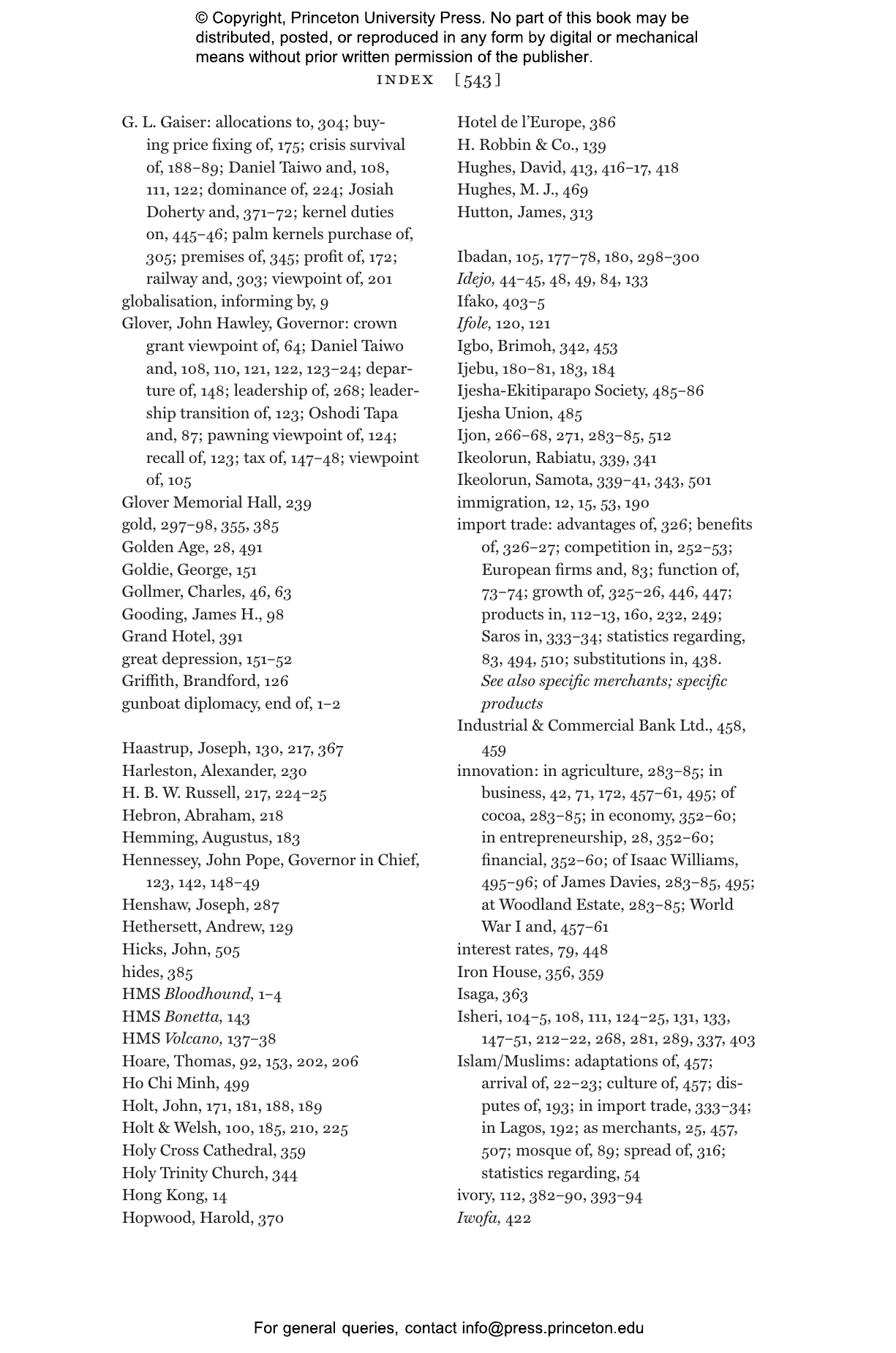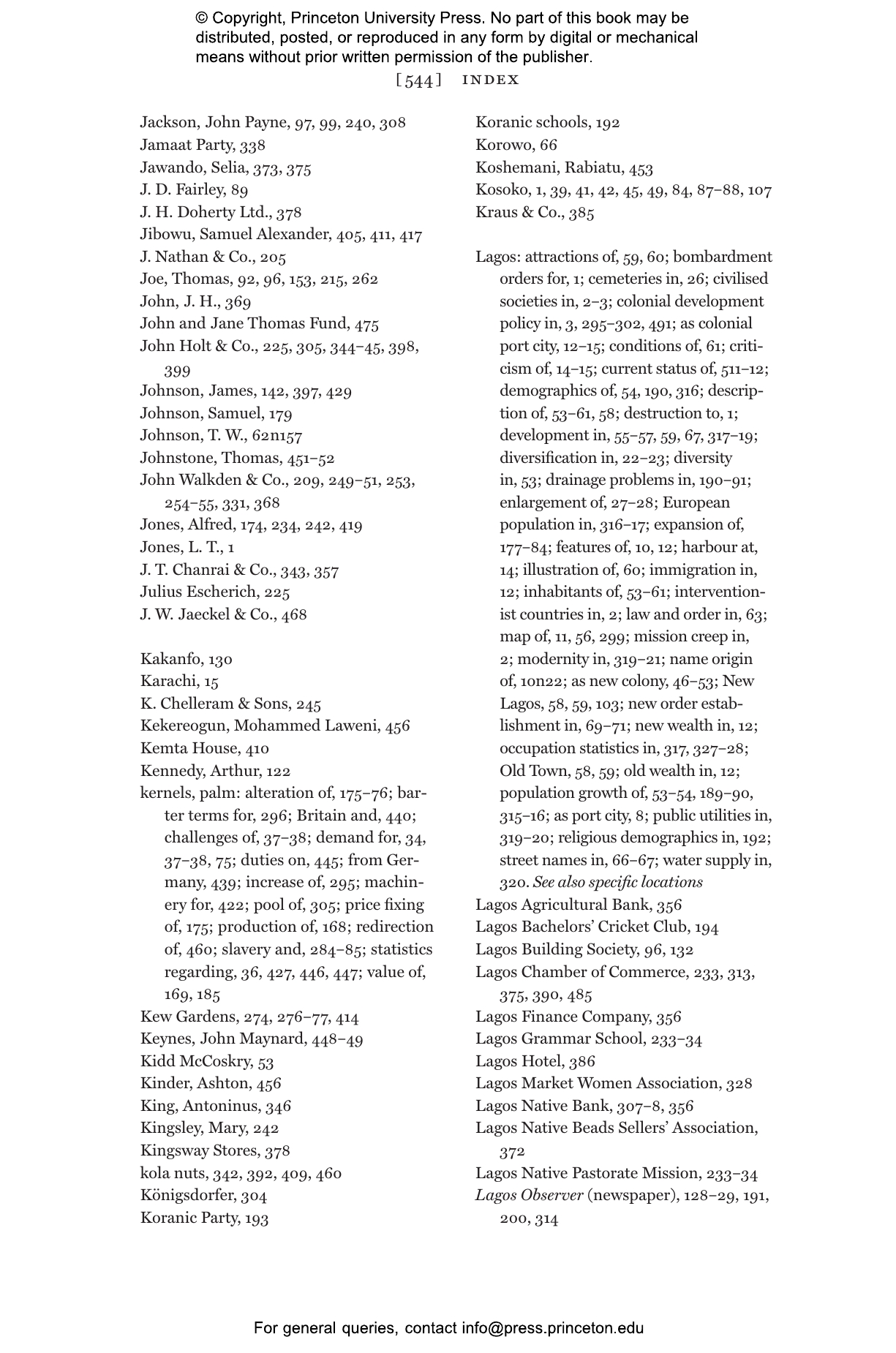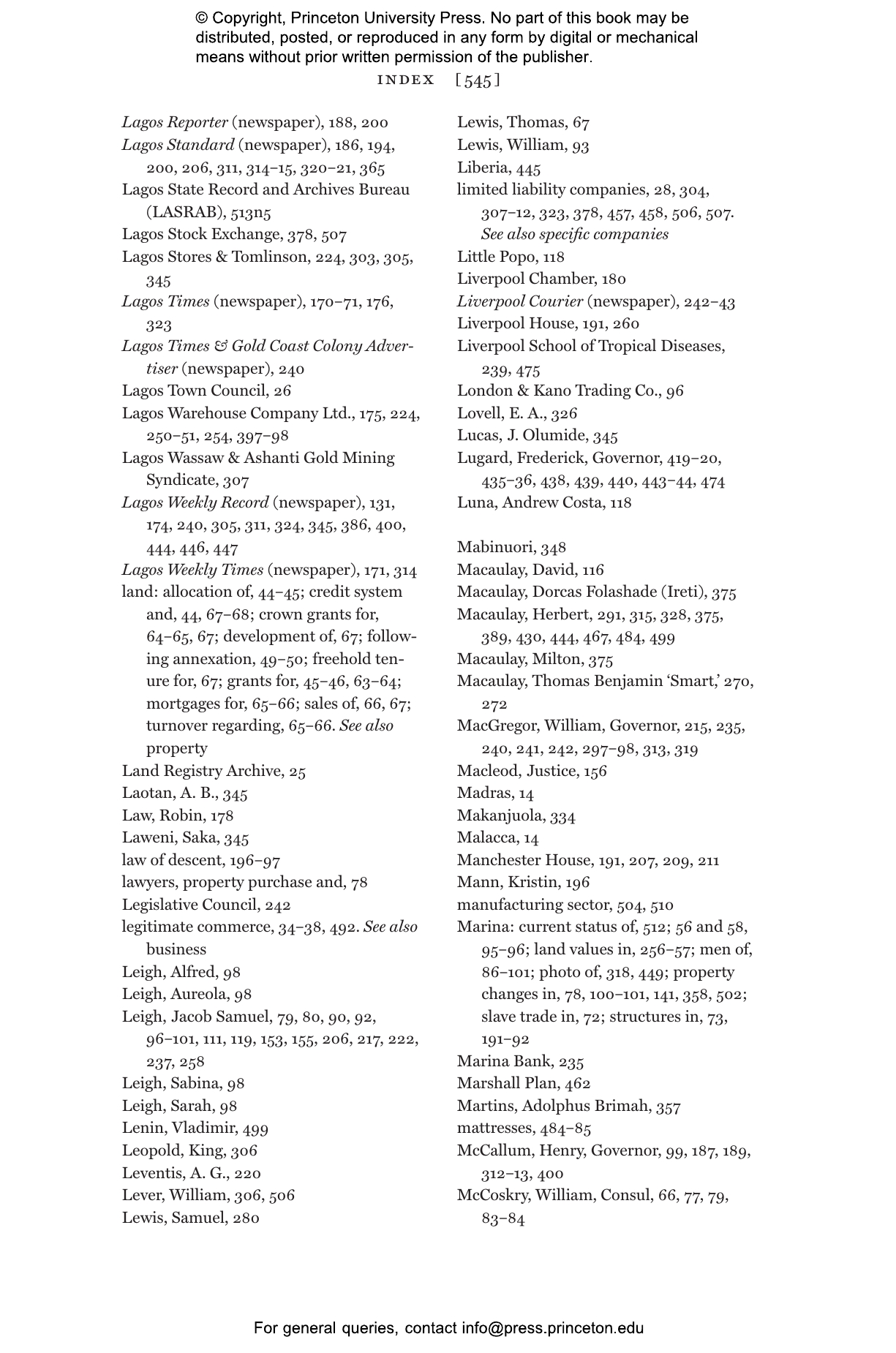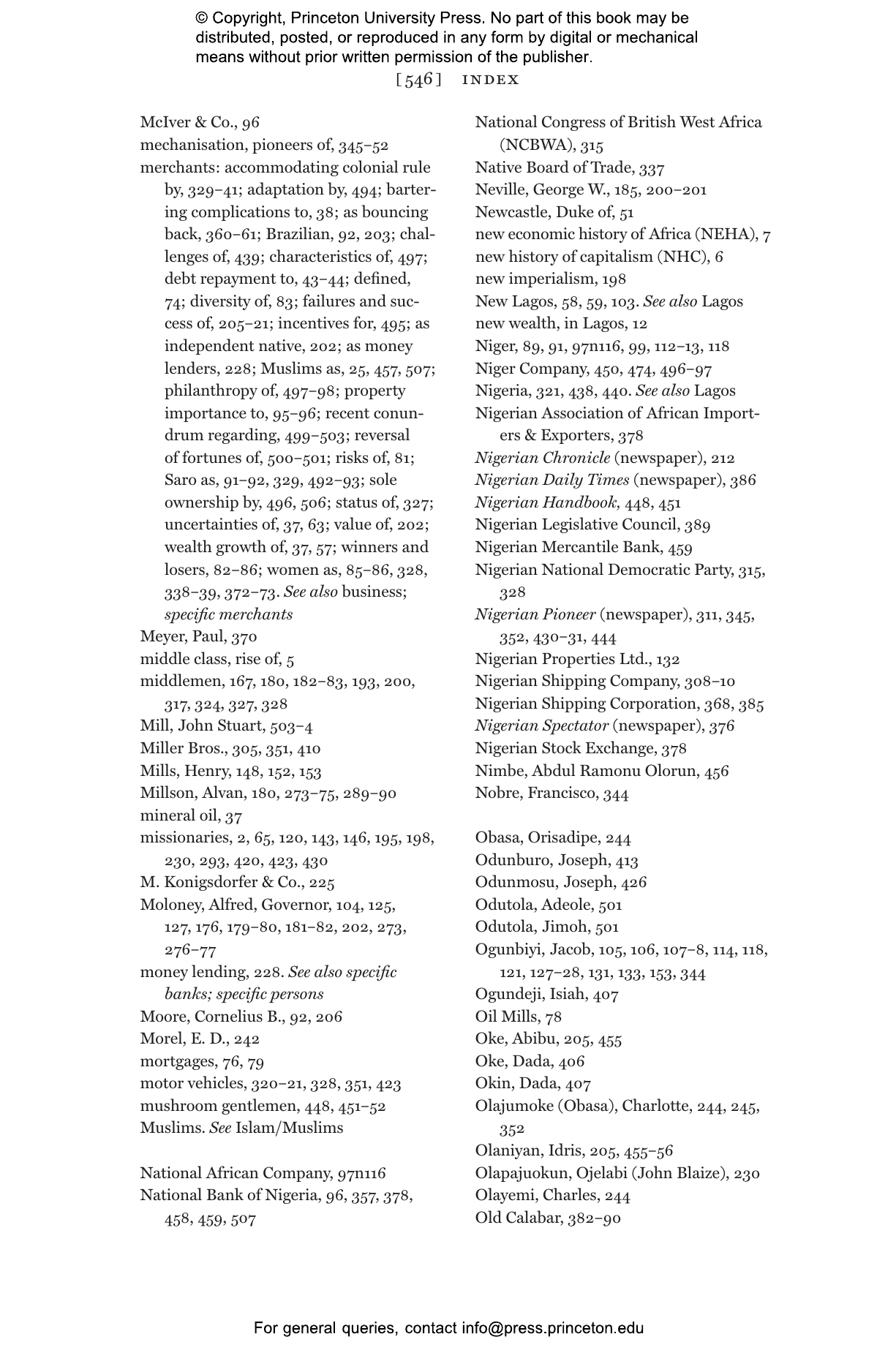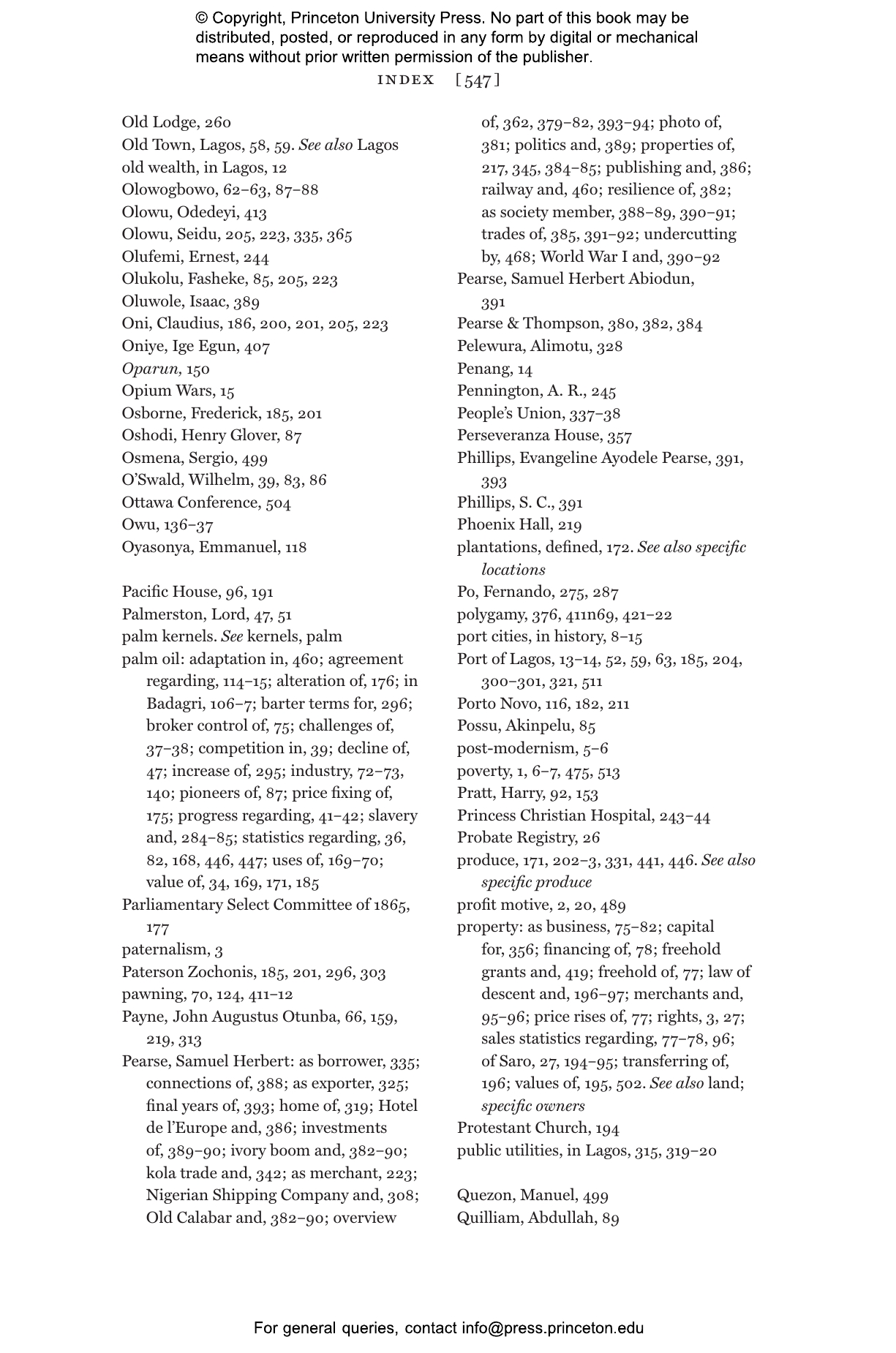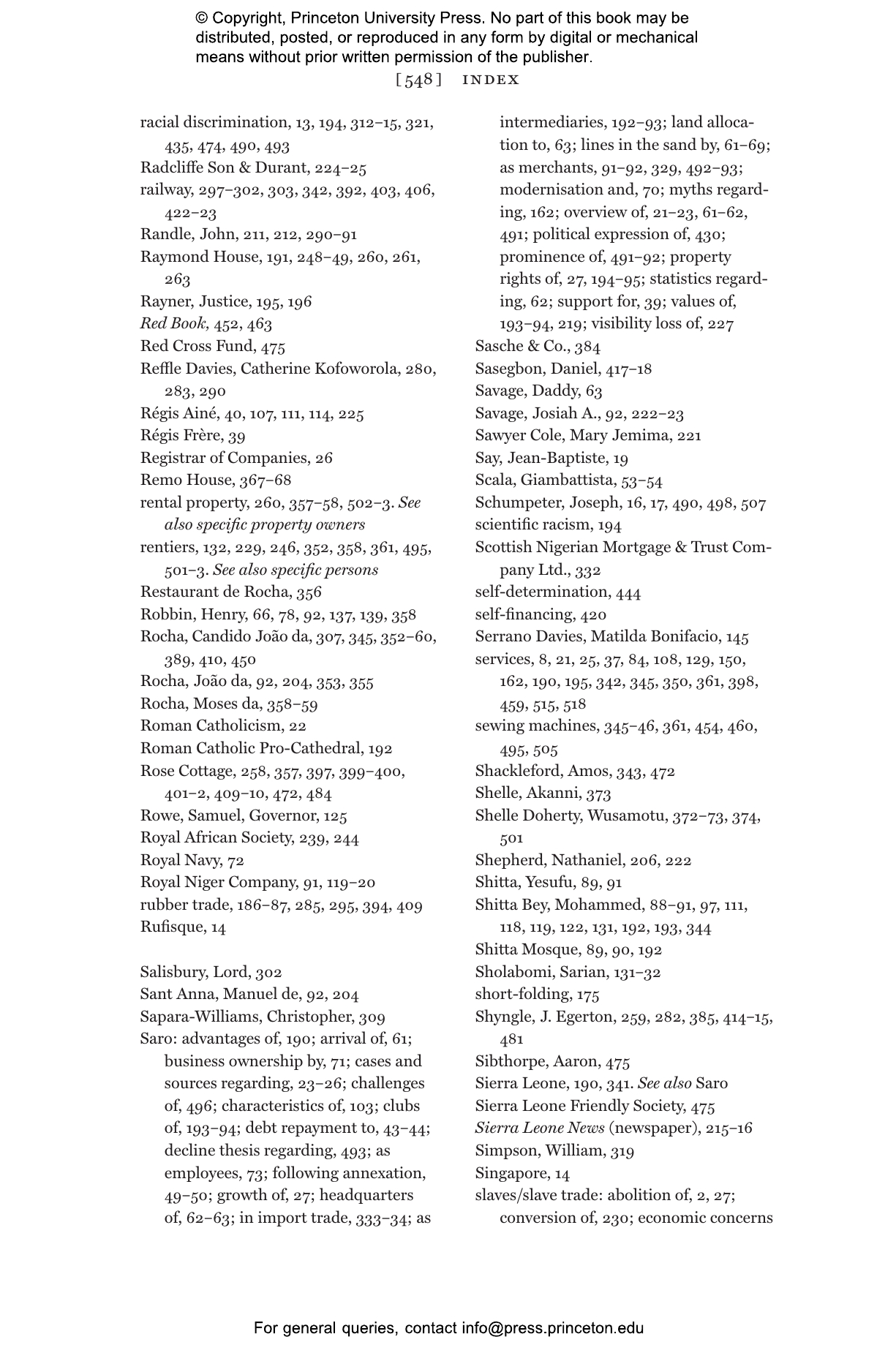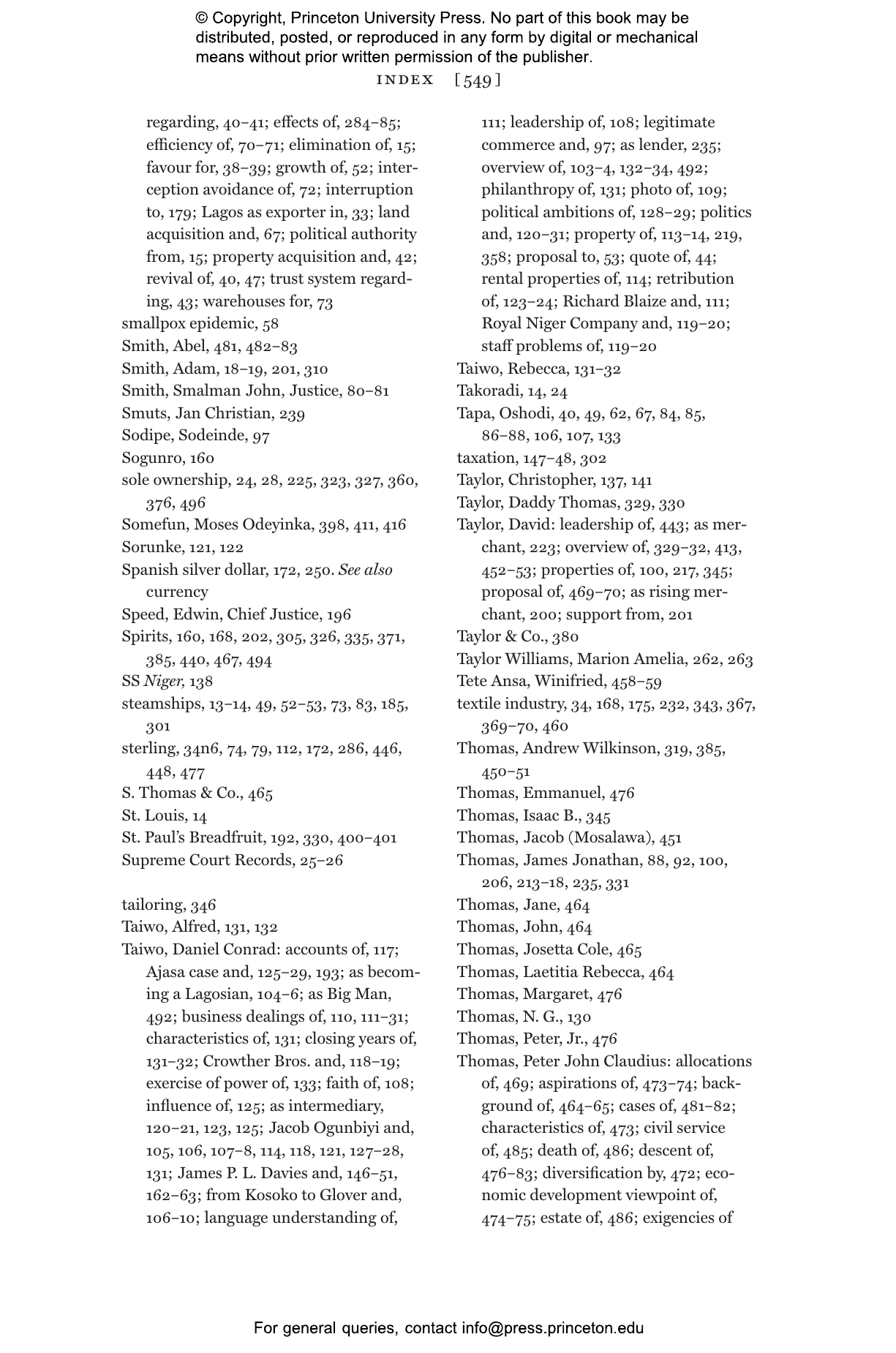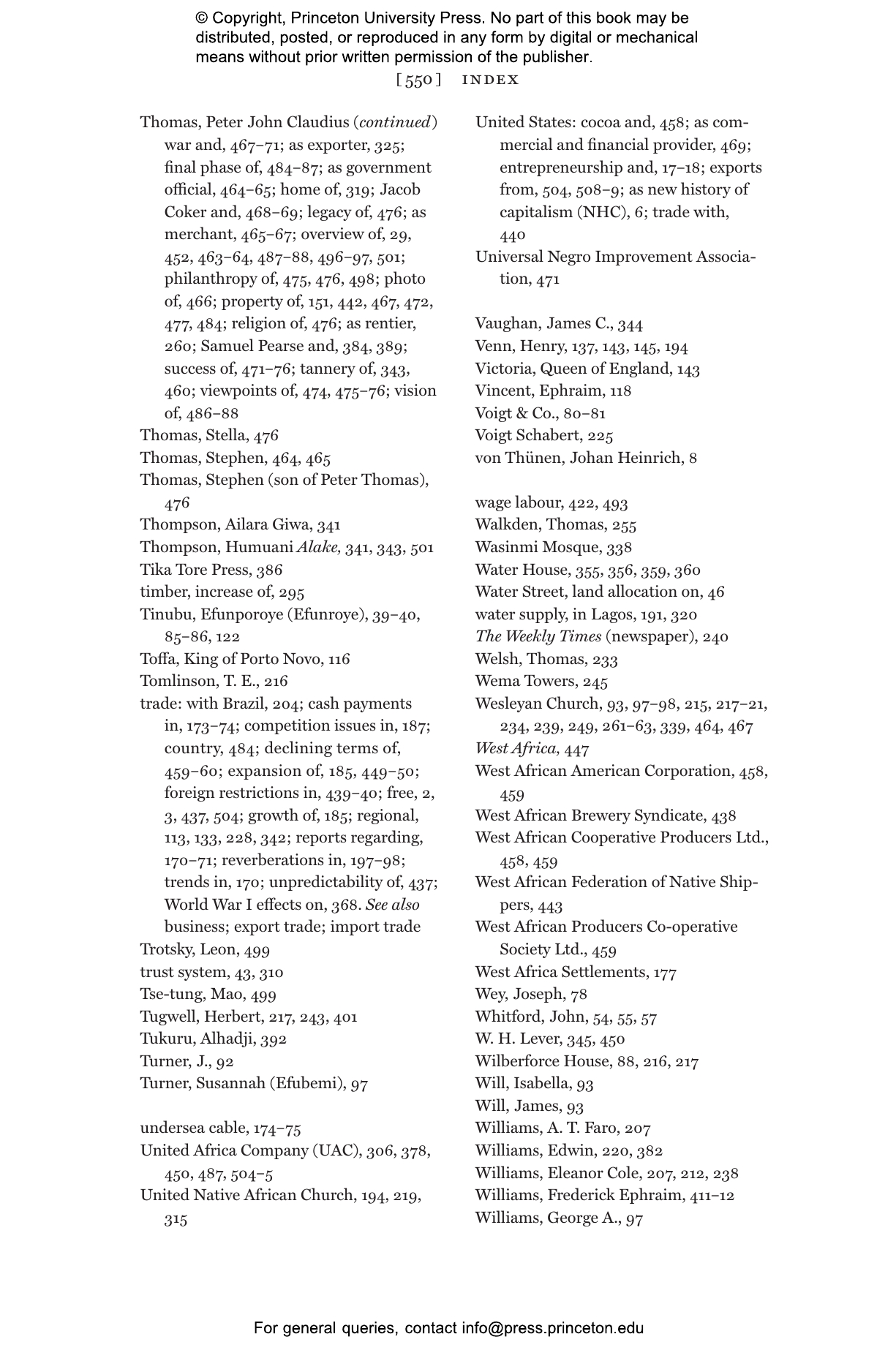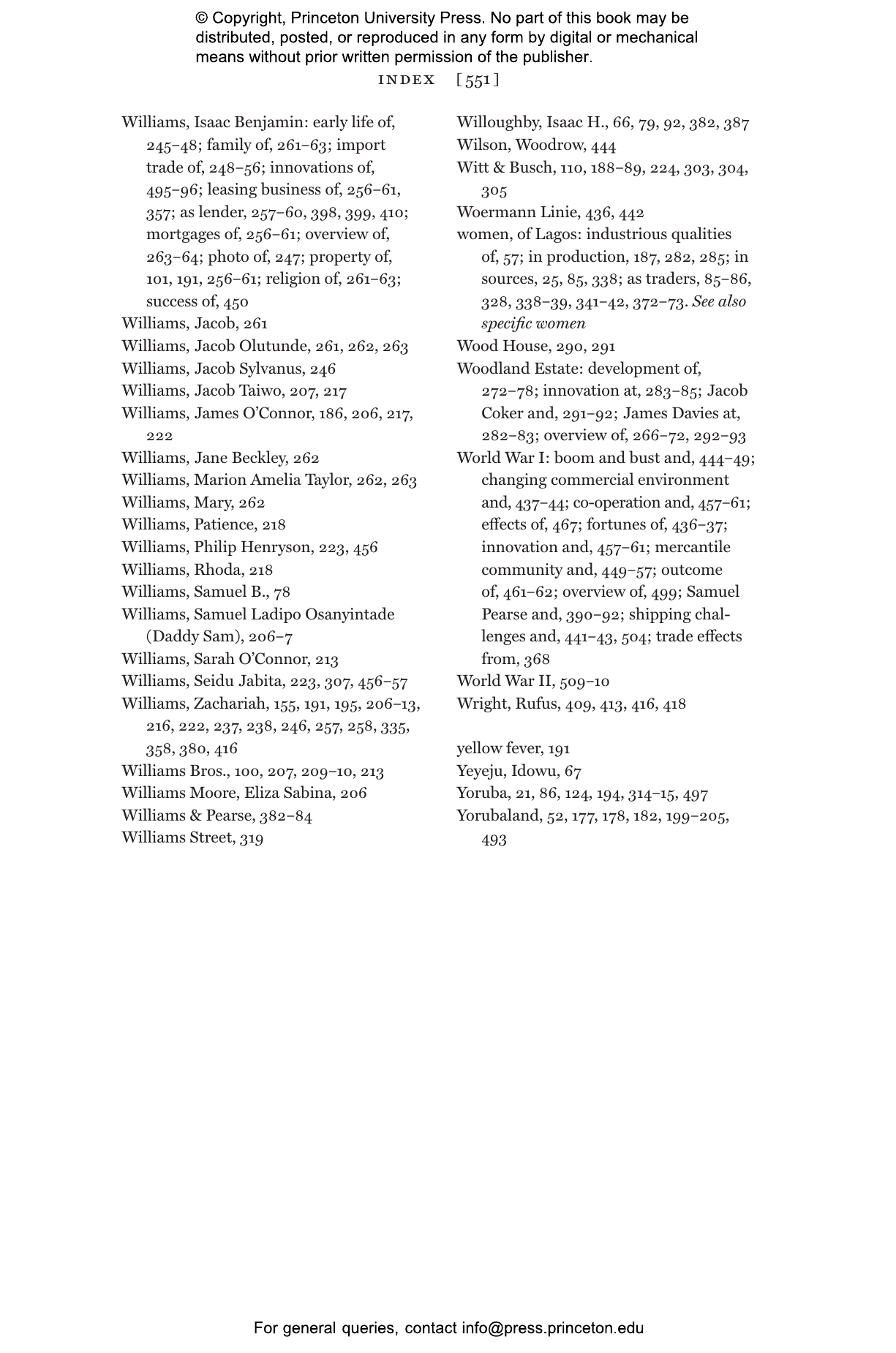In Capitalism in the Colonies, A. G. Hopkins provides the first substantial assessment of the fortunes of African entrepreneurs under colonial rule. Examining the lives and careers of 100 merchants in Lagos, Nigeria, between 1850 and 1931, Hopkins challenges conventional views of the contribution made by indigenous entrepreneurs to the long-run economic development of Nigeria. He argues that African merchants in Lagos not only survived, but were also responsible for key innovations in trade, construction, farming, and finance that are essential for understanding the development of Nigeria’s economy.
The book is based on a large, representative sample and covers a time span that traces mercantile fortunes over two and three generations. Drawing on a wide range of sources, Hopkins shows that indigenous entrepreneurs were far more adventurous than expatriate firms. African merchants in Lagos pioneered motor vehicles, sewing machines, publishing, tanneries, and new types of internal trade. They founded the construction industry that built Lagos into a major port city, moved inland to start the cocoa-farming industry, and developed the finance sector that is still vital to Nigeria’s economy. They also took the lead in changing single-owned businesses into limited liability companies, creating freehold property rights and promoting wage labour. In short, Hopkins argues, they were the capitalists who introduced the institutions of capitalism into Nigeria. The story of African merchants in Nigeria reminds us, he writes, that economic structures have no life of their own until they are animated by the actions of creative individuals.
A. G. Hopkins is Emeritus Smuts Professor of Commonwealth History at the University of Cambridge and an Emeritus Fellow of Pembroke College, Cambridge. He is the author of An Economic History of West Africa, American Empire: A Global History (Princeton), Africa, Empire, and World Disorder: Historical Essays, and (with P. J. Cain) British Imperialism, 1688–2016.
“Capitalism in the Colonies is a tremendously rich account of how African merchants in Lagos adapted to and shaped the processes of economic and political change in the region during the late nineteenth and early twentieth centuries. It brings together an astonishing array of primary sources—some rarely or perhaps even never used—to examine the shift to ‘legitimate commerce’ and the process of colonial expansion from the perspective of the African commercial class which made both of these changes possible. A remarkable contribution.” —Leigh Gardner, London School of Economics
“This is an exciting, engaging, and highly original account of the development of capitalism in the colonial port city of Lagos, in particular the careers of Lagos merchants and their role in spreading capitalist institutions. The wide chronological scope and large sample of merchants sets this manuscript apart from others in the field.”—Laura Channing, Durham University
“Capitalism in the Colonies is not just a work of brilliant scholarship, it’s a time-travelling adventure into the heart of Nigeria’s economic awakening, packed with more intrigue and entrepreneurial spirit than a Lagos street market.”—Johan Fourie, Stellenbosch University
“Africa’s population is now close to 1.5 billion, bringing attention to its economy. How does Africa grow today while still under colonial-type constraints? This masterpiece by A. G. Hopkins looks to history to provide a clue. He documents the activities of 116 colonial-era Nigerian entrepreneurs, overcomes the neglect of their skillful agency, and supersedes simplified Eurocentric doctrines with a coherent view of capitalism.”—Patrick Manning, University of Pittsburgh
“Capitalism in the Colonies is a richly documented, generously illustrated, and carefully organized insightful study of African business and society in West Africa’s premier port-city from the 1850s to the early 1930s. Woven around three 'shocks' or epochal events in 1851, 1892, and 1914, and illuminated by numerous business biographies, it draws upon massive archival and court records, oral interviews conducted mainly in the 1960s, and contemporary newspapers. This book highlights African agency—innovation, resilience, and adaptation—and provides a magisterial and an innovative (re)interpretation of the business, economic, and social history of Lagos in the vortex of intersecting local, imperial, and global dynamics from the British occupation to the Great Depression.”—Ayodeji Olukoju, University of Lagos
